#they are just poor misunderstood deeply flawed characters TO ME!!!!
Explore tagged Tumblr posts
Text
Mr. Curly Mouthwashing is such an interesting and tragic character to me. Not tragic in the way that Anya is- good God, not in the way that Anya is. But tragic in the way that he is a victim of himself, of his own naivety, of his own limited perspective and blind trust. A victim of his own actions and arrogance, and a victim of the direct consequences that stemmed from his poor decisions.
I see a lot of people reading Curly’s character in a way that I just personally didn’t. I could very well be wrong, and I’m certainly open to the possibility, but I actually prefer to think that I’m right, because it’s these layers and dimensions to his character that make him so interesting and complex.
He wasn’t a “bad” guy. Not in the way that Jimmy is, who had every opportunity to do the right thing just ONCE, and yet failed to, because that selfishness and cowardice is ingrained in his very core. Unlike Jimmy, Curly was just an ignorant guy. Not malicious by intent, but ignorant nonetheless. That doesn’t justify anything he did, or anything he failed to do, but it explains more about him than a simple write-off of his character does.
Curly was operating under an illusion of grandeur. His belief of his power transcended his position and extended into every facet of his life. His approach to confronting Jimmy wasn’t because he didn’t believe Anya, but because he viewed Jimmy as misunderstood just as much as Jimmy himself did. He inappropriately sought nuance in a situation that didn’t need it. On top of Curly and Jimmy’s history and camaraderie- as well as Jimmy’s raging victim-complex that so obviously influenced Curly’s perception of him- the fact that he was disillusioned by the extent of his control ultimately led him in failing to protect his crew. Anya especially.
In the very beginning of the game, we see him talk about how he knows he should have raised more of a concern about adding a fifth member of his crew without enough cryo-pods to accommodate Daisuke. It is this blatant dismissal of safety protocol that reveals just how shortsighted and ignorant Curly can be. And when Anya revealed her abuse to Curly, it’s this same ignorance that led him to confronting Jimmy.
Curly wasn’t trying to dismiss Anya, and he certainly wasn’t trying to betray her. He simply lacked her perspective. As a man, he couldn’t begin to fathom the feminine experience with the intrinsic evils of masculinity and the patriarchy. He has this almost childlike sense of optimism, thinking Jimmy would reveal himself to be a deeply flawed and misguided- but ultimately good- person, only to be confronted with the reality of Jimmy’s narcissism, insecurity, and apathy. By then, it was too late. He was an enabler. He had protected Jimmy. He had given him all the resources to hurt the very people he was entrusted to protect. It was a wake up call that came too late, a raising of red flags after Jimmy’s evil had already been revealed.
Curly should be held accountable for his failures and shortcomings- “take responsibility”- but I also believe he should be viewed sympathetically. It’s too easy to brush past the little details that make him so damn human in pursuit of a simple explanation. There are some people, like Jimmy, who have a full understanding of their privilege, and weaponize it as a means to control, coerce and abuse the people around them. Then there are others, like Curly, whose privilege has been so second-nature to them that it becomes entirely invisible. Had Curly realized this earlier, he very well could have prevented the fate of himself, of Anya, of Daisuke, and of Swansea. Even as a victim of Jimmy’s derangement himself, Curly ultimately was a perpetrator in his own right.
I don’t think Curly is a “bad” guy. I think he’s just a wrong guy. A guy who was arrogant, but not malicious. Ignorant, but not evil. He’s just as easy to blame as he is to mourn. He’s a walking paradox. He’s an absolutely brilliant character.
#mouthwashing#captain curly#curly mouthwashing#anya mouthwashing#daisuke mouthwashing#swansea mouthwashing#jimmy mouthwashing#sorry if this makes next to no sense I am so tired#mouthwashing spoilers
217 notes
·
View notes
Text
Let's talk about Ai's decision in Ch 154
This is a reaction to some people saying that Ai was stupid in this chapter or that they dislike what this did to her character. I'd like to dig deeper for the sake of organizing my own thoughts on the matter.
This post is long so just skip to the TLDR if you want!
Ch 154's big reveal was that Ai wanted to love Hikaru. She wanted to raise a family with Hikaru but felt that it would be too much of a burden on him because "he was being crushed by the weight of his life" and was "on the verge of breaking." She also acknowledged that he was dependent on her. So she broke up with him in a harsh manner, believing he would be okay once she and her kids were gone.
Let's break this down.
Was Ai stupid for this?
No. Could Hikaru have handled fatherhood at such a young age when he was already suffering from so many emotional wounds? Probably not. It's not inconceivable that starting a family with the girl he loved could be healing, but he couldn't even take care of himself, much less two kids. This was a recipe for disaster.
We could say that the way Ai did it was stupid but I would like to be more generous than that and I'll elaborate below.
Was it unfair of Ai?
I think it was unfair to take the decision of whether he could handle the pregnancy out of Hikaru's hands. That said, if we read this as Ai also recognizing how unhealthy their relationship dynamic was, it's not unfair to end things in part because of that.
Was the way she broke up with him cruel?
Yes, and I'm sure this is why some people feel so negatively about Ai in this chapter. Ai claiming that the product of Hikaru's rape was too much for her led to Hikaru framing Taiki's birth as "something I had done" and stating that Ai leaving him was "only natural."
Still, Ai was not a cruel person. She was gentle and loving but she was also timid. Her coping mechanisms for handling confrontation were to bury her true feelings and put on a suffocating smile. She shouldn't have said what she did, but it was an effective way to make him hate her. She wanted a clean break to free Hikaru from herself and the twins, who she felt were a burden to him. She just didn't have the emotional skillset to handle this correctly.
And she was just a teenager!
As Oscar Wilde wrote, "It is always with the best intentions that the worst work is done." Ai's intentions were kind. Her delivery was almost comically bad.
But why didn't Ai try to get back with Hikaru when she called him or at least try to make amends?
Ai was confused about what love felt like and how to express it. We also don't know how she felt about him almost 4 years later. My take is that by the time she called Hikaru she had moved on from the idea of a romantic relationship but still cared deeply for him.
As for why she never reached out to make amends, Ai does avoidance like she's training to be the avoidance champ of the world. Just look at the short story 45510 where she explains her feelings to her fellow B Komachi members in an unpublished post on their defunct blog. There is also a manga panel showing that Ai had over a hundred unsent text messages. At the time I assumed they were all to the B Komachi girls but some could have been intended for Hikaru.
Ai's regret
Finally, Ai regretted this. Yes, trying to fix it 15 years after the fact is absurdly late, but her heart was in the right place.
TLDR: Ai was just a normal person, as flawed as the rest of us, who experienced hurt, anger, loneliness, and uncertainty. She was misunderstood by everyone around her and commodified by the entertainment industry.
She hurt someone who loved her but it was not out of malice. The extremely poor delivery of the breakup was inevitable given Ai's avoidant tendencies and that she was a teenager. Criticizing Ai without acknowledging everything that led to this point just doesn't sit right with me.
And finally, this panel broke me and I will be suing Akasaka and Mengo for damage to my heart.

72 notes
·
View notes
Note
Okay I couldn't bring myself to read all your posts about the Woobiegard fic, bc it was that painful to even imagine, but it made me think. Why are edelstans so eager to ruin her character? She's genuinely interesting, and if you really wanted it would be hard but not impossible to make her WAY less racist. But instead they always lean into the racism and says the Nabataeans deserved it?? Everyone always makes the actions of the war out to not be her fault but she's interesting bc it IS her fault. But no, everyone has to bend over backwards, ruining other characters, in order to make her a saint, when her canon personality is infinitely more interesting. She's the villain for a reason guys. It's possible to like her character and not be fucking weird about it. I could go on for days about it but whatever. If you want a saint who only reunified fodlan bc they had to Claude is right there. (VW for the win)
If I were to take a shot in the dark, it's the go-to of "Edelgard can never be wrong ever."
Making her less racist would mean that she would have been racist to start with - that is a flaw, and Edelgard can't have actual flaws. She can be stubborn, she can be ~self-loathing~, she can have flaws that endear the reader/player to her, but actual flaws in her personality and beliefs? Nah. Her racism, her tendency to go for violence first words second, her imperialism, her tendency to not admit she was wrong, her deceitful nature, her ability to easily betray supposedly close friends, her self-centeredness, her laziness and childishness - those all can't actually be negative to her character.
So her racism is justified as right. She's forced to be violent but would never want to initiate it otherwise. Her imperialism is what saves Fodlan. She can admit she's wrong about needing to love herself, the poor darling, but she's right on everything else. She was forced to lie, and forced to betray her friends, because fate. Her self-centered is portrayed as empathy. She's very hard-working and she views herself as the broken pieces of a shattered child - she's self-aware that she is nothing more than whatever is left of lil' El's spirit but she never does anything like want power but no responsibility, or eat sweets all day, or think that everything would go great if everyone everywhere in Fodlan would just agree she has a right to rule over them (and if she does think that, well, she's right of course!).
Actually engaging with Edelgard's character would mean acknowledging that she is a deeply flawed individual. They do not want to admit that she is a deeply flawed individual. And since she's "not flawed," her flaws thus can't be wrong. They either are a result of someone else making her do something, are correct of her to have, or are "misunderstood."
Which is a shame, because I do think Edelgard could be an interesting character in the hands of a writer unafraid to actually engage with her flaws (since even 3H doesn't want to get too far with it many times). But this view of her either being on the same moral level as Dimitri and Claude or being on a higher moral level than them is just so pervasive - you'd have to tag whatever work does this as "negative" just for daring to focus on her base personality.
Also yes Claude rules 🤘
#ask#o captain my captain#anti edelgard#anti-edelgard#edelgard critical#edelgard discourse#just to be safe#(to be clear 3H Claude rules Clyde von Hresvelg can eat my ass lmao#but yeah like it really DOES sap the life out of her character to woobify her so much#as well as others that now have to break themselves trying to bend around her ''righteousness''#like IS dropped the ball on Edelgard at times sure but the fandom as a whole took the ball and chucked it straight to hell
39 notes
·
View notes
Text
Thinking about Flowers again (the Channel 4 TV series) and really want to talk about Shun.
Warning for spoilers, mental illness, suicide. Full text under the cut since I kind of ended up writing an essay.
Note: though I've seen the show through a few times it has been a while since I've watched it and I don't have immediate access to it anymore since Netflix apparently took it down. I can't be bothered to go through the pains I did to watch it back when it first aired so I'm working mostly on memory. It helps that Shun forever haunts my brain and I've been thinking about him on and off again since 2016, but forgive me if I get anything wrong.
I've never seen another show deal with the many ways depression can manifest and affect anyone like Flowers has. With Maurice and especially Amy you understand there is most likely a genetic component to their mental illnesses and it's devastating because they don't have any answers as to why they're like this and don't know how to make it better. But Shun. My poor misunderstood Shun. I wonder how many people who watched the show even realized that he unfortunately did die by suicide at the end of the series, and I only ask because I've hardly seen anyone mention it, or really talk about his struggle much at all.
By contrast Shun's depression seems to have less of a genetic component and the circumstances of his life instead are what led him to his fate. He's seen by the cast of characters and the audience as a care-free, quirky, lovable weirdo who always looks on the bright side and can't feel put down by anyone's words. And this is all probably a genuine aspect of his personality when he's in a good place, but for the span of the series it's all an act! While the Flowers themselves become very open about their struggles with mental illness, Shun becomes more closed off in a sense by pretending everything is okay as he continues to deteriorate. He's the kind to mask his pain with comedy, or an overly cheerful demeanor, thus he gets overlooked by the Flowers and the audience. Which was probably the intent, anyway.
So he laughs, and jokes, and says odd little things, and enthusiastically supports and believes in everyone around him. Then he has brief moments of sobering emotional vulnerability, empathy and understanding for Maurice's suicidal ideation ("I like dark," being one of the most emotionally revealing and impactful scenes in the series, serving as a prequel to the events of the show while also being the final scene to play after Shun's implied death, if I remember correctly), isolated mental breakdowns (in which he hallucinates his dead family), bouts of heavy binge drinking, and in what is probably the most shocking moment if you've yet to realize he isn't just a ball of sunshine despite everything, goes on a drunken and really hateful, racist rant about Chinese people in the most self-destructive environment he possibly could; a Chinese restaurant (because in my opinion if you want to get badly hurt without doing it yourself that's a pretty good way go about it). Shun as a character is not silly and childish (and his character is definitely infantilized) but a deeply troubled and flawed person who is trying to hold it together for the sake of everyone around him. Unfortunately, he is so often on the verge of cracking that he can't help slipping up occasionally.
Shun has suffered the greatest loss of anyone in the series. He found his entire family after they had been killed in an earthquake which also destroyed the rest of his village. He became displaced and lived in miserable poverty until he discovered and connected profoundly enough with Maurice's work that he believes it is what saved his life. He wants desperately to find family again with the Flowers, but despite everyone's best efforts he remains walled off by the seemingly insurmountable sense of isolation and otherness that comes with being a foreigner. When he hallucinates his dead family in the woods, he tells them, "They just don't like me here." At the same time you can tell he's torn between the family he misses and loves and the Flowers, as the manifestation of his father especially is very harsh towards him, and as a unit they are dismissive of his anxieties and broadly judgemental of westerners in general. Through the entire interaction he remains physically distant from all of them; it's not the warm, ideal reunion he was hoping for. To me the scene also implies Shun may carry some sense of guilt for being unhappy with his family life before it was taken from him, and all of this together just aggravates the sense that he has no one to turn to and nowhere to go.
Later on when he revisits the same spot in the woods with Donald, to show him his "special place," I believe it was in part so they would know where to find him if he ever did complete a suicide attempt. At the end of the series, we see him sneak away with the gun that was confiscated from Amy and in the last shot of him in the present he's standing forlorn and contemplative in his same special place.
If anything, the show is very good at letting us know in the end that no one is truly to blame for suicide, not the individual who dies by it and not the people around them who couldn't prevent it. But it's especially devastating when you don't see it coming, or when it happens to the ones who seem like they were doing okay, or doing better, or whose personalities were so happy and fun and...untouchable, in a sense. It also demonstrates (especially with Amy's manic highs and final, intense breakdowns) that things can go from fine to crushing and traumatic very abruptly from an outside perspective. I maintain that the show gives us the most relatable, realistic depiction of living with depression and suicidal ideation I've ever found despite its surrealism, and Shun's troubles are subtle enough to have been placed on the back burner in much the same way many people really have experienced. Flowers tells us to pay just as much attention to the Shuns in our lives, and in my mind this show will always be just as much about him as it is about Maurice.
#Flowers#Channel 4 Flowers#Will Sharpe#OP#Feel like I've missed a few points but we can circle back#This is plenty for now lmao sorry#I'm just sobbing and screaming about this show forever and ever I had to write something to get it out
10 notes
·
View notes
Text










There is a lot going on in this series of asks so I'm going to take it bit by bit but thanks so much for sharing your perspective.
First of all, thanks for the well-wishes about my job and I wish you the best with your university education! It can definitely be a rough road but I hope you are able to fight through your despair and find a comfortable place in the world for your studies <3
Back to Tywin. For your first point about the real Tywins of the world, I absolutely concur, there are so, so many people who have huge amounts of power because they're rich and vicious and in real life they won't all get their comeuppance for sure. And I definitely think the fact that ultimately it's the poor and innocent and vulnerable who lose out almost every time is definitely a theme in ASOIAF (a theme that I personally feel would be better served if it wasn't for all of our POV characters and most of the prominent non-POV characters with the exception of my beloved Davos being highborn themselves but that's neither here nor there). And I definitely think there's something really cathartic about the way Tywin ultimately dies in light of that, because he 100 percent reaps what he sows and in real life not everyone does. (Paired, of course, with the tragedy that other characters in his family who are a lot more sympathetic are also going to reap what Tywin sowed)
But this is a fictional story and it's all part of a Narrative and everything has a Point. So now onto these people from reddit! (I haven't looked at ASOIAF reddit but this is making me not want to, lol, I've had enough bad discourse off the Sopranos reddit). I think the people you're describing on reddit are really misreading the series/Tywin's character, honestly. Yes, his death is a massive plot twist and came as a total shock to me when I first read it, but looking back and evaluating both the circumstances and the general themes of the narrative it makes complete and total sense and fits perfectly with the story GRRM is trying to tell. (I also don't get the perspective of being disappointed Tywin died, lol). Because the whole point of Tywin is that Tywin's godlike status is a lie, it's a sham, it's completely full of shit. I don't necessarily feel like speculating on whether Tywin could have talked himself out of this situation if he'd actually believed Tyrion might kill him: personally, I feel like the fact he doesn't believe Tyrion will actually kill him is indicative of how he's undervalued and willfully misunderstood and mistreated Tyrion his whole life and he's basically dug his own grave years earlier and is just blindly continuing to dig it now.
I think C from reddit is also overstating Tywin being a "cunning tactician and skilled politician", it's not that Tyrion killed Tywin because no one else could, because Tywin is FUCKED on multiple levels even aside from this encounter. If he hadn't died, shit would have blown up in his face big time, because the reason House Lannister is collapsing in on itself rn isn't just because Tywin isn't there or because Kevan/Jaime/Cersei aren't as effective/capable as Tywin, it's because a lot of Tywin's tactical and political plans are short-sighted and ultimately self-destructive. Look at the Red Wedding: Tywin who is firmly unaware that he's in a fantasy story couldn't have necessarily forseen that it would lead to the level of supernatural upheaval that it has, but he COULD have seen that it would permanently alienate the North, further tear apart the Riverlands, and lead to massive discontent against his regime from both the nobility and the common populace in multiple regions. Look at what he did to Elia and her kids, which has consequences that have been building in the background for the last 15 years but are about to blow up in a big way with Doran + JonCon + Aegon.
Closer to home, he has raised three kids who are absolutely psychologically shattered and totally unable to perform the roles he wanted for them despite all that nepotism, two of whom pretty much started a war via the dysfunctional incestuous relationship he's been ignoring their whole lives, and his shitty parenting basically kicked off a cycle of generational trauma that not only has woefully fucked up his kids but also his grandkids. Tywin's not a god, he's not brilliant, he's a deeply flawed person who's in denial about virtually every aspect of his life and legacy and has gotten this far mostly due to unearned privilege and being very, very cruel.
Thanks for sending me this, it was very thought-provoking (as well as emotionally compelling!) and also gave me an excuse for another rant about this topic! I hope you have a lovely day.
19 notes
·
View notes
Note
Hello This is kinda weird put I remember reading a good write-up on Miu that like Toko and Mikan she has low self esteem and never really had any friends so she literally doesn't know how to interact with people Plus she's in a situation were she can get killed in any SECOND so add these factors and I think that somewhat explains her lack of empathy and her just constantly being on edge She's in a situation were anyone she gets close to can end her life What do you think about this? Thanks
Hi anon, I don’t think it’s weird at all! Miu is actually one of my favorite ndrv3 characters; I love her to pieces and I agree with this analysis a lot! I believe she gets a lot of flack for being a female character who’s crass and rude and not very empathetic, despite people often idolizing or making excuses for male characters with many of the same traits.
To this day I still somehow see misinformation spread about Miu and used to call her things she isn’t, including blatantly untrue claims like “she forced herself on Kiibo” (which, I cannot make it more explicitly clear how much she does not do this). I’m not saying anyone has to love Miu or consider her their favorite character, I just think she gets an unfair deal sometimes.
It’s been a long time since I got to write a more in-depth analysis of her, so I’ll share more of my thoughts under the cut! Watch out for spoilers as always.
Miu having low self-esteem isn’t just a headcanon or a fan theory; it’s pretty much canon. Despite constantly acting arrogant, loud, and abrasive, Miu is absolutely desperate for validation and attention from others. For as haughty as she likes to act, she backs down almost immediately whenever someone so much as snaps or glares at her, clearly afraid that she’s somehow said the wrong thing or made someone mad at her.
In my opinion, she’s completely unaware of how she comes across to others. She wears her emotions on her sleeve and has no filter whatsoever, and this combined with her desire to be respected and praised for her talents means she’s very difficult to get along with.
I’m not making excuses for her actions; I still think some of the things she says about other members of the group are pretty terrible, and I do, to some extent, simply think she’s not really the type to empathize with others. But I do think part of it is that she’s just completely unaware of how she sounds or comes across to others. She has no understanding of social cues, or what it means to “tone it down” in order to better fit in with other people.
Obviously, it’s not like the other characters are at fault for getting fed up with Miu sometimes or not wanting to spend time with her. Like I said, she’s incredibly loud and abrasive and nearly impossible to please, especially as she’s quick to make fun of others or get mad if she thinks they’re wasting her time. But it’s somewhat… sad, in a way, to see how desperately she does want someone to spend time with her and acknowledge all her positive traits, like being an “amazing gorgeous girl-genius.” She really does strike me as someone who has probably been alone most of her life, and her inability to understand social cues or realize how she sounds to other people means that she never learns from her mistakes or gets any better.
This is part of the reason I actually really love her interactions with both Kiibo and Kaede.
I find it touching that she and Kiibo have such a consistently good dynamic even in the middle of the killing game. In the same way that Kiibo is one of the only characters openly sad after Miu’s death in chapter 4, Miu is perhaps the only character who doesn’t really look down on Kiibo for being a robot; instead, she thinks he’s the coolest person she’s ever met precisely because he’s a robot. And I think there’s a lot to be said too about how both of them are characters that really struggle with understanding social cues or fitting in with a group.
Meanwhile, Miu’s FTEs with Kaede are perhaps the closest we ever really see her get to making a friend or getting included with the rest of the group. I absolutely love how much Kaede refuses to back down whenever Miu is saying something horrible or mean or gross, and how she always puts her foot down whenever she crosses a line. When Miu tries to “compare chest sizes,” Kaede just flat-out punches her for it, leaving Miu baffled and confused, but also with a better understanding of personal boundaries.
Kaede always feels like she’s trying her hardest not so much to put up with Miu, but to understand why she acts the way she does, and puts a lot of thought into what she could do or say that would make Miu want to become more of a team player or open up to people more. The rare moments where Kaede praises Miu and Miu becomes genuinely flustered and taken aback are further proof of how much Miu really wants validation and has no idea how to go about asking for it without coming across like a total weirdo, so I have a big soft spot both for those first few FTEs with Miu, as well as some of their interactions together in the Talent Development Plan.
It’s also interesting that you should mention Miu’s fear of being killed at any point in the killing game as a big reason for why she acts the way she does. I bring up the fact that Ouma has very clear signs of paranoia and a fundamental inability to trust others a lot in my meta—and Miu is no different. In fact, the biggest reason chapter 4 plays out the way it does is because both of them are incredibly paranoid and mistrustful, terrified of getting killed, and this causes what could have been (and was, for a time) a very powerful alliance between them to completely fall apart into pieces.
If I had to draw parallels between Miu and another character, it wouldn’t be any of the other “pervert” characters in DR, or even any of the other inventors/programmers. It would be with Maizono.
Chapter 4 of ndrv3 is, in my opinion, actually incredibly similar to dr1 chapter 1: both Miu and Maizono ultimately make the decision to try and kill someone out of sheer desperation to confirm the state of the outside world with their own two eyes, and both of them ultimately have their own plan turned against them and are killed in the end. Where Maizono’s strongest driving force for wanting to get out no matter the cost is sparked by the sight of her own motive video, Miu’s is sparked by the fear that the outside world may be a total wasteland, and the knowledge that she could actually do a considerable amount of good with her talent.
It’s absolutely correct to say that Miu didn’t trust anyone else. She and Ouma both collaborated together for a time—we don’t know how long exactly, but it’s clear that they were at least working together for a while given the sheer number of inventions that Ouma commissioned from her and provided designs for. The fact remains that the two of them were this close to putting together a plan to take down the exisals so they could escape with everyone else… but again, sadly, both of them were far too paranoid for this plan to ever actually work.
Miu’s biggest problem with the plan as Ouma proposes it is that she simply doesn’t trust anyone else. All the clever inventions and plans in the world won’t pull through if even one person decides to double-cross them or simply put self-interest first. And it’s worth noting that she’s kind of right here, considering Tsumugi was very much still part of the group at this point in time and absolutely would’ve sabotaged their plan using any means possible. So in an interesting turn of events, Miu decides to put her self-interests first and commit a murder in order to escape, because she suspects everyone else of wanting to do exactly the same thing.
Overall, Miu is a deeply flawed individual. She’s loud and rude, demanding and hostile, incapable of recognizing her own mistakes, and deeply paranoid and mistrustful of others. But all of these things are very much the reason I love her. Again, she’s not for everyone. No one has to like her.
But I find it interesting that other male characters who have the same or arguably worse flaws (flaws usually stemming from misogyny, including Souda stalking and harassing Sonia for the entirety of sdr2 with no change in his behavior, or Teruteru who straight up threatens sexual assault both in sdr2 and dr3) often have tons of people willing to defend them and somehow justify their actions, while Miu gets painted as irredeemably bad or has her moments with Kiibo completely skewed out of context.
In any case, these are my thoughts on Miu’s character. I hope I was able to make myself clear! I don’t think that she’s a “poor misunderstood baby” or anything like that by any means, but I do think she’s incredibly interesting and complex, both because of her flaws and because of how undeniably useful her talent was to the group. For someone who was so adamantly against being a team player, it’s amazing how much Miu’s inventions are vital to saving everyone’s lives in most of the game’s trials. Thank you for the fun question, anon!
#danganronpa#miu iruma#iruma miu#ndrv3#new danganronpa v3#my meta#ask#anonymous#ndrv3 spoilers //#okay to reblog
84 notes
·
View notes
Note
Fanfic question. In writing a deceased character who is very complex like loki. How do u write it without making them look too good, or too bad. Is there a way to balance it out
I approach writing all characters the same way, which is to make them as real as possible. Which...I realize isn't that helpful, haha. Like, with Loki specifically, I guess, I have this sort of mental map of his personality, so that in any given situation, I know how he'll react to it. What makes Loki really fun to write is how flawed he is. He can be immature, petty, cruel. His expectations for others are absurdly high, because like all self-loathing people, he projects his own insecurities onto others. His self-awareness is...poor. He's stubborn. He's defensive.
And yet...Loki is also brave, and loyal, and caring. He loves his family and his people. He doesn't like causing pain; he doesn't like death and suffering. He's appalled that the TVA are lying to all of its employees. I firmly believe that Loki is a good person.
As a writer though, I'm not interested in shining examples of humanity. That's why I'm drawn to villains and anti-heroes so much. I'm much more interested in deeply flawed people who make good choices anyway. Strange is the rare hero and star of his movie that I love, and it's in large part because of his asshole personality, lol.
So...yeah, I guess, I just write flawed characters. Honestly, with Loki in particular, I usually just feel like I'm writing myself? I identify really strongly with Loki, so in some ways it's really easy for me to write his flaws, because they're my flaws too, haha. Though I think I'm more self-aware than he is.
I'm not sure exactly where the deceased part comes into this, so I feel like I might not be answering your question exactly the way you meant it, so I'm sorry! Send me another ask if I misunderstood what you were asking!
6 notes
·
View notes
Text
Rant about Frankenstein
Because honestly what the fuck else would I do? Elizabeth, Justine, and Caroline are my favourite characters and Adam’s misunderstood but not in an owo sad boi way. Because honestly what the fuck else would I say? Y’all know me by now.
Hey did anybody else have to read Frankenstein for gradeschool? Because Jesus Christ, that book was unbelievably horrible. Victor is irredemable in so many ways, he gets a twelve-year-old girl killed because he doesn’t want to take responsibility for his own crimes, and also he marries his sister. 🤢
....... And this is the guy whose pain we’re supposed to be sympathizing with???? Like NO THANKS??!!!
His whole family is horrible by the way? His dad married a woman young enough to be his daughter who, more importantly, was almost wholly financially dependent on him at the time when he proposed and therefore could not properly consent? Like ... she had to choose between abject poverty and him and that’s not a real choice at all? They pretty much kidnapped Elizabeth who had her own family and it’s implied that she never got to see her real parents again. Do you know how unbelievably traumatizing that would be? They pretty much kidnapped Justine too though they let her see her family occasionally which doesn’t change the fact that she had to go so long without them when she was just an elementary school-aged child. And also they made her do child labour. While letting their teenaged son just lie around in a boat for no reason. And Victor pretty much kills her later to save himself. If you read between the lines you can see that they groomed Elizabeth and arguably even Victor from a disturbingly young age to marry each other (despite the fact that they grow up in the same house with the same adults and are therefore siblings). Neither child really has another option for people to marry it what to do with their lives and they both grow up knowing they’d inevitably end up married to each other as their father wants. Which is disturbing. That’s incredibly disturbing. Unbelievably disturbing. The way young-child-Elizabeth is described is too womanlike fo be describing a child? The same thing happens when describing Victor’s youngest brother? Who dates a five-year-old when he’s like eight or nine? Like I’m aware that kids date but that’s a fucked up age difference for two people so young and it’s described so creepily.
And honestly Victor’s whole family is so disturbing? But the worst part of it is that his family isn’t described as disturbing. They’re described as such good people and such a sweet, loving, perfect family. They’re painted as do benevolent and kind and generous. And like ... they’re not? At all? They’re abusive, exploitative, and predatory? I mean except the women but the women are all the victims of the men. And it’s painted as this pure, innocent, loving thing. We even talked in class about how perfect and loving his family is.
And I want to talk about the female characters. Caroline, who got coerced into marrying a “good, honest, benevolent” man under the implicit threat of destitution, sacrificed her life to save Elizabeth. Elizabeth, who gets kidnapped a groomed, is the only one who truly feels sorrow for Justine’s death. Sure the other members of the family mourn, but it’s just for show. There never is the deep, caring, vulnerable, emotional aspect to it. They go through the motions of mourning because it’s what’s right. You can tell because Victor had ample chance to save Justice but didn’t even try whatsoever at all because he wanted to save his reputation. Despite the fact that he’s much older than Justine. And the way he mourns is the same hollow way the other men in the family mourn. But Elizabeth’s mourning is so much more raw and agonized and real. Because they understand each other. They share each other’s pain. And Justine herself, from the little we see of her, is also shown to be a deeply loving girl. She holds a picture of her real/birth family close to her at all times. Her displays of love are not grand, ornate, and ultimately hollow like the men. They’re simple, and humble, and genuine, and pure. The women understand what live us, and what emotions are, while the men don’t.
I don’t believe this is intentional though, despite the book being written by a female author, because every single time the men are described they’re described as perfect and flawless while the women are described as pretty and beautiful and “oh they love the men so much” and that’s it. But their actions betray the truth of the profound deep ness and wisdom of their characters. And given how you know how like, what we see in the world informs how we write about it, subconsciously, right. Well Mary Shelley probably unconsciously write about the strength, camaraderie, compassion, and empathy she has seen but hasn’t consciously noticed, without even noticing it.
You might tell me, oh wow Mary is a female author why would she be misogynistic?
You need to remember that internalized misogyny is one hell of a beast. Twilight, Fifty Shades of Grey, After, Dark, and so many more misogynistic trash books were all written by female authors. And also the difference between Mary and her female characters is that Mary was from a rich family whereas every single one of her female characters in this book were from a poor background and class is an even more impactful praxis than gender and multiple axis often intersect in very strange and horrible ways.
Back to the story.
And obviously everything that goes on when Victor goes off to university is horrible. And so many people talk about how it’s horrible for Adam but they never truly realize the pain that Adam is in. Apart from being Victor’s son and being thoroughly abandoned, and feared, and even hated by his father Adam is forced to live in a world that shuns him and sees him as a monster.
Adam is, in my opinion, the only redeemable male character in the book. Despite having no control over his emotions, his emotions are real. Adam is alone. Justine is alone. Elizabeth is alone. Caroline is arguably alone. The violence the Frankenstein family inflicts upon the members it considers lesser is unimaginable. Adam is alone, is lesser, is pretty much forced to grow up on his own because he failed to meet expectations. Victor is so full of hubris and ego. And honestly, at least this gets addressed but he never is truly held accountable by the narrative. He has such a goddamn high opinion of himself and thinks he can do everything. He never thinks of the fact that the guy he creates will be their own person. Victor views Adam as an extension of himself and his glory. And when Adam commits the “crime” of not living up to Victor’s expectations Victor abandons him immediately. Because Adam was supposed to be a monument to Victor’s glory, to Victor’s artistry, to Victor’s intelligence, Victor’s power. And he wasn’t that. He was a young, flawed child in need of guidance and support, guidance and support he never received.
So this all begs the question. Why did Victor feel the need to create Adam? Because truly, as messed up as Victor’s family, they are messed up in a different way. Victor, growing up his family, was always the darling. Always the centre of attention. Always adored and fired and called genus. For existing. When he went off to university, this was not the case. He was a bright student but he was one student of many. He was not special just because. Whatever position he had he had to gain somehow. And I’m not saying meritocracy is good, it isn’t. But it was a different system than what he grew up in and for the first time he wasn’t so close to the very top. Of course that would deeply “hurt” a man as coddled as Victor was. Of course that would drive him to need to “prove himself.” It would drive him to need to show that he was glorious. And he needed Adam to prove his worth to them and gain his position.
Everyone talks about how Adam’s actions were irrational, borne of over-emotional passion and disregard for the morals of polite society. They don’t see that in the face of extreme, unbearable psychological and even sometimes physical trauma m violence the only way forwards is with violence if your own. Think of it as do-it-yourself Karma.
Adam was alone. Justine was alone. Elizabeth was alone. Caroline was alone. But Adam had so much privilege - and yes it is privilege - that the others don’t have. Adam is free. Adam does not fit into the society and all its class-divides, gender-divides, race-divides, religion-divides, and other divides. He doesn’t have a place on the hierarchy. Or in society. He exists in his own sphere. And is beholden to none of the rules if said polite society. He doesn’t have to surround himself with people who want to exploit, abuse, and control him. He doesn’t have to do what they say. He doesn’t have to fake gratitude. He had the type of freedom that Justine, Elizabeth, and Caroline deserve but do not have.
I’m being rejected by society Adam retreated into the wilderness and lived in nature. I believe there is something deeply poetic about that. Because the wilderness is the origin and the end.
But anyways, Adam didn’t know how corrupt the Frankenstein family was. He didn’t know many things. But he knew rage, and he knew violence.
And he knew how to kill.
And it was so cathartic in a strange, subconscious way to see the Frankenstein family’s downfall. I mourned Elizabeth and Justine’s deaths. I seriously mourned them. But they were the only ones. And I still felt a sense of peace and calm at their deaths. Because now they’re free from their nightmare lives, right? Elizabeth, especially. Because she was getting so close to her wedding night. She was getting so close to the time when she would have to sleep with the child of her kidnappers, who she grew up with, who she was raised to be a wife for. That’s not good. So it was actually a relief that he died before she could consummate that sham of a marriage. Elizabeth and Justine were beautiful, radiant souls that deserved to be in the world. But at least they’re free. They deserved to live. Big they also deserved freedom. Not either/or. Both. But still. If you ask me freedom is worth more than life. If humans had not been so neurobiologically wired to stay alive I would have happily died years ago.
And the Frankenstein men. Their deaths are viewed as such tragedy. They are so deeply mourned. We are made to feel heir loss so deeply. And we are meant to feel grief and terror for them. But I don’t. It feels so deeply, morbidly satisfying to see them finally be the ones that suffer, to see them finally be the ones that grieve.
Especially if you consider the class issues that pervade the whole book. They live in early Industrial Revolution Switzerland, a place drowning in poverty, death, and misery that the comfortably wealthy are shielded from. It’s good to finally see the iron bars if destiny bent in a shape they’re not supposed to be in. It’s good. Cathartic. Not terrible and unholy as the narrative would have you believe.
And that family is finally smites from the Earth. Gone. Rooted out. Along with all their festering corruption. And in his last grand, holy, martyric act Adam Frankenstein let’s the cold winds of the Arctic wilderness carry his spirit into death.
And though Victor is portrayed as a tragic, sensitive genius from a respectable family with a fatal flaw that destroyed him in the end, he was truly a rich, male, coddled, spoiled man-baby from an overprivileged and corrupt family who raised him to be who he was. And the men of the family, including the youngest and estranged son Adam, were all destroyed by their corruption.
But what else do you expect in a novel written by a rich lady of upstanding background from Georgian England of all places and times?
1 note
·
View note
Text
13 Reasons Why: Season 3 - Character Thoughts
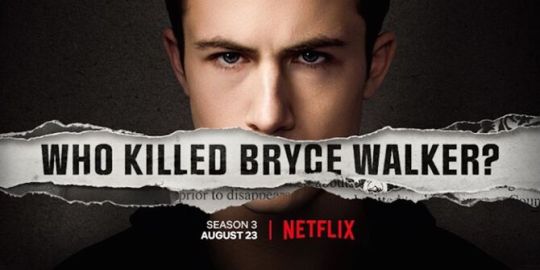
The third season of the controversial Netflix show 13 Reasons Why dropped on August 23rd. Since I am the world’s slowest binge-watcher, I recently finished the season and damn do I have some thoughts and opinions.
This isn’t the first time I’ve talked about this show here. I did a review for the very first season back in 2017 when it first aired. Two years later and here I am again trying to wrap my head around everything that occurred over the 13 episodes.
Since there’s a lot I want to stay and I am still processing the entire season, I figured I’d make a couple of different posts regarding the show. This one is going to be all about the characters and what I thought of them this time around.
So sit back, this might take a while.
Let’s start with our main character, the person of interest, and our hero Clay Jenson. I’ll be honest with you, Clay Jenson was never a favorite of mine.
His biggest flaw to me has been his need to place his crushes on a pedestal. He did it with Hannah, he did it with Skye, and he did it with Ani in this season. You’d think he’d learn his lesson but nope! The boy just keeps on putting unrealistic expectations on his crushes. He projects an imaginative version of his crush onto the real thing and it never turns out well for him. They’re never as pure as he thinks they are. They’re never as good-hearted as he thinks they are. They’re never truly who he thinks they are. And that’s his own damn fault. Yes, Ani shouldn’t have been lying about her friendship with Bryce but at the same time, Clay shouldn’t have thought that she never said two words to him.
Clay has a heart of gold. He will do anything and everything for his friends -- even if it means going down for a murder he didn’t commit. And he feels deeply. As Justin said, “He’s a good person. If he acts out of emotion, it’s because he fucking cares.”
Clay, by definition, is a nurturer. He takes care of the people he cares about and he sees the best in them even when they don’t. He gave Tyler hope and courage, Justin a second chance on life, and Tony a friend he could rely on. What’s interesting, and not all that surprising is that Clay saw potential for greatness in almost everyone he met except two people -- Bryce Walker and Montgomery De La Cruz. That’s not a coincidence.
Going forward, I’d like to see Clay grow as a person without a romantic interested because the boy has real potential. And I’d really love to see him go to therapy. This is my plea to the writing staff -- GET CLAY A THERAPIST!
- - -
And then we have our new narrator and new character Ani Achola. Oh, Ani you had such big shoes to fill and you didn’t even come close to filling them.
One of the biggest issues I had with Ani’s character is that she came out of nowhere and suddenly she’s BFFs with these kids who barely like each other. I find it so hard to believe that she would be so quickly accepted within the tape squad -- especially when they’re harboring a giant ass secret about a foiled school shooting!
And it’s not only that she accepted, but it’s also the fact that they trust her. Never once does anyone ask Ani to leave when they’re talking to Clay about what really happened after Homecoming. NO ONE! It took Clay an entire season to get people to trust him and here comes Ani worming her way into everyone's business. I just don’t get it.
As if that’s not bad enough, she fucking lives with Bryce! Okay, she lives in Bryce’s guest house but still, she lives on the Walker’s property. You’re telling me the writers want me to believe that this group of teenagers who loath Bryce Walker are suddenly BFFs with a girl who lives on his property? Give me a fucking break.
The nonsense doesn’t even end there. This girl, this dumb new girl who hangs out with a group of people who loath Bryce and who were put through hell because of him decides that she knows him better than they do. That Bryce Walker has changed and suddenly he’s a good person. And then she has the audacity to fucking sleep with him! But she’s fearful of Clay — fucking Clay Jenson would couldn’t hurt a fly even if it landed on his dinner. The amount of hypocrisy that spews from Ani’s mouth is astonishing.
But don’t worry cause by the end Ani has come to her senses and spearheads the entire idea of placing the blame of Bryce’s death on Monty. Are we expected to applaud her a hero? I certainly don’t.
Ani Achola is nothing more than a talented manipulator. It’s no surprise she got along so well with Bryce who also has mastered the art of manipulation. Ani goes around telling everyone that she knows and sees things in people that they don’t see in themselves. She builds them up, learns all their secrets, and then slowly uses those secrets against them.
She did it with Jess — telling her she saw a badass girl inside her, learning she was raped by Bryce, and then fucking sleeping with said rapist. Not to mention she comes up with the ridiculous idea that Jess slept with Bryce to regain her power. COME ON!
She did it with Clay — befriending him and earning his trust and love, knowing he had feelings for her and stringing him along, using his anger towards Bryce after what he did to Hannah against him to justify him being the murderer.
She manipulated every one of the core characters into trusting her so that they would spill their darkest secrets to them. And she made them believe that they needed to speak up so that they could protect Clay, but really, I think she was trying to figure out who killed her beloved Bryce Walker.
I don’t trust Ani. I hated how things ended with her telling her mother that she was seeing Clay — she didn’t even ask Clay first, she just assumed that he wanted the same thing. I’m skeptical and I will remain skeptical.
Also, if it isn’t clear enough, I don’t think she should have been the narrator of the season. This season could have followed a similar narrator pattern as season 2 did with each character narrating their own interrogation.
- - -
This season tried really hard to give redemption arcs to two irredeemable characters when it wasn’t necessary. The season already had its redemption story -- Tyler Down.
I was really hard on Tyler in the first season because let’s face it, he crossed a lot of boundaries. Lurking around the school and taking candids pictures of students for the yearbook is one thing. It’s an entirely different situation when stalked Hannah and took those pictures of her and Courtney. It was an invasion of privacy and at the time his crimes against Hannah ranked him extremely high on my list of hated characters.
Then, season two happened. Just like all sexual assault victims, Tyler did not deserve to be sexually assaulted. To this day, that is one of the most disturbing and jarring scenes of media I have ever consumed. I still get sick to my stomach thinking about it. Tyler was so affected it by it that it lead him to nearly become a school shooter -- thankfully, Clay stopped him.
Season 3 Tyler is the Tyler that the world deserved. We got to see Tyler deal with his trauma and the ups and downs with being a sexual assault survivor. In the end, Tyler becomes a happier and healthier version of himself. Yes, Clay and everyone who kept Tyler’s secret helped but it was really Tyler who did all the heavy lifting. Tyler was the one who had to want to get better and, though it took a while, he realized that he did want to get better.
Tyler went from a misunderstood, bullied teenager who felt so much hatred and fear that he was willing to kill to a happy teenager with a group of friends who truly care about him -- not because they have to but because they want to.
Tyler’s relationships with the other characters are really interesting because you can tell he’s very skeptical of them at first. He knows they’re just being friendly to him to ensure that he doesn’t do anything bad again. He feels like he’s being babysat and yet, he follows them around when he’s scheduled to because he knows they’re helping him. As the season progresses, we see these relationships develop into real friendships.
Tyler’s actions are redeemable not because of his past trauma but because he understood he was in the wrong. He understand he was making a poor choice because of the trauma he was facing. And he wanted to change -- he didn’t want to die. He realized he didn’t want people to hurt the way he hurt.
Not only was he a redeemable character, but his character is so important in the larger discussion of sexual assault and male victims. Tyler didn’t have to tell Clay or Jess or the entire school or anybody that he was a sexual assault victim. But he did and in doing so he allowed the world to see that, yes, men can be sexual assault victims too. When he stood up at the assembly and uttered the words “My name is Tyler Down and I am a survivor” he opened the door for his fellow male classmates, like Justin Foley, to stand up and live their truth. Not only that, but it made the other members of Hands Off realize that Tyler was more than an ally, he was a survivor.
I never thought I’d say this but Tyler is one of my favorite characters now. I hope we get to see him continue to thrive and maybe even help Jess run the Hands Off organization.
- - -
Justin Foley. I don’t know what it is about that boy, but I have loved him since day one -- I think it’s the puppy eyes. Don’t get me wrong, Justin has his flaws. He started the shit storm that leads to Hannah’s suicide by taking that picture of her at the park. And he played a part in the rape of his girlfriend, Jessica Davis by not doing more to stop it.
Now some might say, how could you forgive a character who let their girlfriend get raped? How could Jess forgive the boy who let her get raped? Unlike Bryce, Justin showed remorse instantly -- at least on the inside.
Like Tyler, Justin has a redemption arc, though his arc is still a work in progress. I absolutely loved how ride or die Justin was when it came to Clay. Justin couldn’t stand Clay in the first season and now the two are living together and on the road to being brothers. He was willing to lie to the police about his whereabouts that night to give Clay a solid alibi. He pulled Clay away from the Homecoming fight to protect him from getting hurt. And he was willing to lie to the Jensons, even after all they’ve done for him, to make sure that Clay wouldn’t go to jail.
Justin may have thought he found a brother in Bryce, but he never knew brotherhood until Clay took him in.
My biggest issue with Justin is his constant drug use. I knew the moment he went searching through his bag when Clay left the room that he was still using. How could he not have been? The second season literally ended with us seeing him inject himself with heroin. A person doesn’t just stop heroin - they need professional help to do it. In fact, Justin may be in even more trouble now that he has added prescription drugs to the mix. I’m so glad he spoke up about needing help in the final episode. I sincerely hope we get to see his journey to sobriety in the final season.
Justin standing up at the assembly and telling everyone that he too was a survivor was such an important and impactful scene. Jess’s face says it all, she had no idea. In hindsight, it’s really not a surprise. Justin’s mom was constantly strung out and bringing home men who were not only bad for her but bad for her son. What shocked me more was his admission that he sold himself for sex when he was on the streets and sometimes things went south. That small little line is so important because it points out that sex workers can be survivors of sexual assault to. They can be taken advantage of. Their trust can be broken. And their willingness to sell themselves can be misconstrued as consent for any and all actions.
Also, the fact that Justin told Jess he didn’t come out sooner because he didn’t want to distract Jess from her own journey -- SOBS! I love you Justin Foley -- you incredibly dumb, yet incredibly kind boy.
But please, get him away from drugs and drug dealers. I want to see a happy, healthy, and SOBER Justin Foley next season.
- - -
The queen of survival, the inspiration for change, and the girl who is done with everyone’s bullshit Miss Jessica Davis.
For the past two seasons, we’ve seen Jess as a victim and for the first time, we got to see her as a survivor. Seeing her as student body president fighting for change and spearheading the Hands Off club was the right move for Jess. I liked seeing her come into her own and understand that she is not her past.
I think it’s important that even though Jess is getting better, she still struggles with what has happened to her. We see her in a flashback tell Bryce that even though she’s healing, sometimes she still feels like he’s on top of her. That feeling is never going to go away, but that doesn’t mean it needs to define her.
Though I’m not keen on the idea of showing teenagers having sex so freely, Jess reclaiming her sexuality was an important milestone for her and for survivors everywhere. I found it interesting and not all that shocking that this time around Jess wanted to be the one in control when it came to sex. It was a way for her to feel safe and enjoy herself because she knew she was the one calling the shots. And even though she was in charge, she still made sure Justin was comfortable as well. Consent is key!
Jess has a lot going on this season. As I said, she’s student body president and the president of the Hands Off club. She’s trying to change the school and how sexual assault victims are viewed. She’s harboring secrets like Tyler’s foiled school shooting and her involvement in Bryce’s death. She’s trying to have a relationship with Justin which leads to backlash from the HO group. And, on top of all that, she’s dealing with her feelings surrounding the death of her rapist.
One thing I found really interesting about Jess this season is her feelings towards Bryce’s death. Her reaction is even more interesting and shocking when we find out her involvement in the murder. When the news hits that Bryce’s dead everyone has a reaction. After Justin opens up to Jess about his complex feelings around the death, Jess comforts him and reassures him that Bryce didn’t deserve to die. And yet, we find out that she watched Bryce die! I kind of wish we got a sense of what her true feelings were regarding Bryce’s death.
Jess is on the right track and I hope we get to see her continue to grow as a person. I hope she finds comfort in herself and continues helping others work through their trauma and understand that they are survivors.
- - -
Alex Standall is another character I’ve been a fan of from the very beginning. His near suicide in the finale of the first season crushed me. So it should come as no surprise that I was extremely disappointed in Alex this season.
I found it extremely out of character for Alex to willingly interact with Bryce — whom he’s hated even before Hannah’s tapes were passed to him. One could blame his interactions with Bryce on his need for steroids but that’s a copout. Alex could have found someone else to buy the drugs from. He could have not done the drugs at all and instead worked harder with Zach. There is no excuse for him turning to Bryce for drugs.
What’s even more alarming is his interactions with Bryce didn’t stop there. He hung out with him on other occasions including helping Bryce break into his alleged father’s new home. Now, yes, Alex came to his sentences shortly after this interaction but he should have already known to stay away from Bryce.
It’s clear that Alex was hurting. Jess dumped him yet again for Justin and he felt vulnerable. But his vulnerability doesn’t excuse him going to his ex-girlfriend and best friend’s rapist to purchase drugs.
And then there’s the small fact that Alex Standall is the one who killed Bryce. There’s certainly a lot to unpack when it comes to his involvement with Bryce. The fact of the matter is, Alex didn’t go to the pier with Jess to kill Bryce. He went to support Jess. In fact, he even tried to help Bryce but in those final moments, Bryce sealed his fate by acting out and accusing Jess of setting him up — how I’m not sure.
I’d imagine the final season will explore Alex’s involvement and his feelings about it even more. And I’m sure his complex relationship with Jess will be involved in his journey.
So, is Alex redeemable? Well, that’s a discussion for another day.
- - -
Once again, Zach Dempsey got the short end of the stick — or so we thought.
The season started out with him being isolated from the rest of the tape squad. Though he didn’t sell Tyler out he certainly thought about it. He definitely wasn’t going to waste his time babysitting Tyler who may or may not act again. And yet, he still showed up at every meeting and played a part in covering up who really killed Bryce.
Zach actually had a lot of great moments this season. His relationship with Chloe was interesting and complex. There’s no denying that Zach hated Bryce and yet, he still offered to help Chloe raise Bryce’s child if she wanted to keep it. And he never once tried to pressure Chloe into getting an abortion even though she was carrying a rapists baby. I found myself applauding when Zach went along with whatever Chloe said regarding the pregnancy. If she kept it that was fine. If she wanted an abortion that was fine too. Zach definitely gets a gold star for that one — isn’t sad I have to praise common human decency?
I also enjoyed Zach’s brotherhood moments with both Justin and Alex. Zach needed friends just like everyone else did and I’m glad he found people he could rely on. His relationship with Alex seems esepcially special and I hope they keep their promise to be the kind of friends that tell each other everything.
Zach’s story becomes even more complicated when it comes to the Homecoming game and his altercation with Bryce. Bryce’s reaction to finding out that Chloe is friends (or maybe more) with Zach is alarming since he’s claimed and shown how into Ani he is. If he was so in love with Ani, why did he need to go after Zach like that?
Thanks to Bryce’s irrational anger, Zach lost his entire future that night. In fact, softie Zach was so pissed off he found Bryce and beat the shit out of him with a broken leg nonetheless! I was a bit confused as to how Zach found Bryce though. From what we saw, Jess was the only one who knew where Bryce was going to be after the game. And it’s not like Zach could have followed him there because he had to go to the hospital to get his leg check out. PLOT HOLES!
Honestly, I’m not really sure what to think of Zach. I will say I’m glad he acknowledged that he had no right being on Tyler’s picture wall at Monet’s. And yet, Tyler put him there for a reason.
Frankly, I think Zach needs some therapy too so hopefully he gets some help in season 4 too.
- - -
I can’t believe the internet is romanticizing Monty and his sexuality when actual angel Tony Padilla exists.
I honestly can’t understand why Monty and Winston are getting all the attention when Tony and Caleb exist — but then again, I do understand. Why would the world idolize an interracial gay couple when two white (or white-passing boys) are hooking up. Tony and Caleb deserve better from the world and from this fandom. They are the true icons.
Tony had a rough go this season. I certainly wasn’t expecting him to have to deal with his family’s deportation but the minute he walked into his home and they weren’t there I knew. What’s a little confusing about this plot, is the fact that his dad owned a legitimate business. The plot definitely felt like more of an afterthought but I do think it was important. It gave the show an opportunity to comment on a very real thing happening in our country and showed how it affects everyone. I’m sad Tony didn’t confide in Clay earlier and that it took Clay’s interrogation and digging for him to tell him. I really hope these characters learn to trust each other next season — they’ve all proved to be extremely good at keeping secrets.
Tony seemed to be the only character who adamantly did not want Bryce’s help this season. He was hesitant to take the money from Bryce for the Mustang especially after learning that Bryce’s father was the one who sold out his family to ICE. The only reason Tony is seen with Bryce again is because he made a promise to Hannah to see that everyone on the tapes listened to them. I found it just as shocking as Tony did that Bryce never listened to them, even when they were spread around the internet. That says a lot about his character.
Tony choosing to sit in the car with Bryce and listen with him says a lot about Tony’s character. I think Tony stayed with Bryce because a) he wanted to make sure he listened to all the tapes and b) he wanted to make sure Bryce wouldn’t destroy the tapes. I don’t think it had anything to do with making sure Bryce was going to be okay while listening. Also, Tony telling Bryce that all of Hannah’s tapes are his tapes was a serious mic drop moment.
Tony, like Clay, is so ride or die for his friends. The minute that Hillcrest moron grabbed Jess at the Homecoming game Tony was ready to fight. If it wasn’t for Caleb reminding him that he could go to jail Tony would have been down there throwing punches.
To me, Tony’s biggest flaw is his necessity to be the tough boy. He doesn’t allow himself to be vulnerable or open up to those he cares about. I hope this changes in the final season.
- - -
Bryce Walker was and will always be a rapist.
This season tried really hard to humanize Bryce, to show that he was capable of change but I wasn’t buying it. I don’t think he was ever remorseful for his actions, I think he only showed remorse when things started to affect his own life. I’ll talk more about that in a different post though.
Bryce is nothing more than a massive manipulator and a rapist.
However, I don’t think he deserved to die. Oddly enough, I think his death benefitted him because he no longer had to live with the fact that he would always be the rapist kid. Bryce deserved to live so that he would have to wake up every morning knowing he was a rapist. He deserved to live with the knowledge that he fucks up everything around him. Death was easy for him, living is where he truly would have suffered.
- - -
Montgomery De La Cruz was and will always be a rapist.
Monty was not a good person. He didn’t even attempt to change like Bryce tried to. He was simply a terrible human being. Giving him a troubled home life and having him suffer from internalized homophobia when he was gay does not excuse his behavior.
Monty’s relationship with Winston was a ploy to earn him sympathy and from the looks of it, it worked on some viewers. I’m sorry, thousands of gay individuals have troubled pasts and live with people who don’t accept them but they don’t go sexually assaulting people or beating up those they’ve slept with.
Monty is no better than Bryce; in fact, he might even be worse because he never even acknowledged that what he did was wrong.
If television has taught me anything, it’s never believe someone is dead unless you see a body. Not only did we not see a body, we never saw Monty get into an altercation in the jail. And there are never any hints that he could end his own life. The only source we have that Monty is dead is from some shady drug dealer. It’ll be interesting to the truth next season.
- - -
Now for the honorable mentions.
Mrs. Walker had a really interesting journey this season. The complexity of her character was astonishing. I liked that she didn’t make excuses for her son and that she understands that he was (and is) a bad person.
The scene with Chloe where Mrs. Walker tells her that Bryce should never be a father was so powerful. Look, Bryce is Mrs. Walker’s only chance at being a grandmother and she’d sacrifice that experience to save her grandchild and daughter-in-law a life of hell like the one she’s been leading.
When it comes to motherly love everyone always talks about how it’s unconditional. Mrs. Walker’s love wasn’t unconditional. In fact, it took her a long time to look at Bryce and not see the monster that she helped create. I did find her speech at his funeral about sometimes seeing him as a 9-year-old boy moving. I empathize with Mrs. Walker because no mother should have to bury her son. And in the same breath, I almost wonder if Mrs. Walker is relieved that she can finally be free now that all three of the abusive men in her life are gone.
I’m interested to see if she’ll make an appearance in the final season. What is her reaction to the news that Monty is the alleged killer?
- - -
If Mrs. Walker is interesting and complex, Mrs. Baker is a damn badass.
Her speech to the Sheriff about how much trouble they're going through to find Bryce’s murder was amazing. I literally stood up and applauded. Mrs. Baker isn’t taking any shit any longer. And she’s certainly going to take any chance she can to point out the injustices in the justice system
And she isn’t going to let Bryce Walker off the hook for what he did to her daughter and dozens of other girls. Mrs. Baker said it best “I wish you a lifetime of learning what sorry is.”
I really enjoyed the scene between Mrs. Baker and Jess. A part of me felt like Mrs. Baker was talking to Hannah through Jess. I think Mrs. Baker sees what Hannah could have been in Jess. I also enjoyed her scene with Clay. It was almost as if she was telling him to tell the police about her so that they would leave Clay alone. Mrs. Baker couldn’t protect Hannah, but she’ll do anything to protect Hannah’s friends.
- - -
Finally, I want to talk briefly about Alex’s dad, Deputy Standall.
There’s no denying that he loves Alex. He would literally do anything for Alex — including jeopardizing his job as a deputy.
In the final episode he tells Alex that when he found him [Alex] after he tried to kill himself, he wished the bullet was in his head. That was a literal and figurative speech. Deputy Standall was admitting that he would take a bullet to protect his son — and he did just that.
Deputy Standall knows the truth. He is a good detective who followed the clues even when the Sheriff was convinced Clay was the murderer. In fact, Deputy Standall even goes off record to ask Ani where his own son was that night. Now, maybe this is a test to see if Ani is telling the truth (since he knows the answer) or maybe it’s a test to see how far she’s willing to go in lying. Either way, Deputy Standall knows the truth.
He knows his son killed or played a part in the murder of Bryce Walker. And yet, he’s willing to risk his career and livelihood, to protect his son from going to prison for the rest of his life.
It will be interesting to see what happens in the final season. Will the truth come out?
- - -
That concludes this long-ass character thoughts post. I do plan on making another post where I talk about what characters are worthy of redemption and why (I’ve teased it a bit here). I also want to make a post about my top 13 scenes from this season. We’ll see how that goes.
For now, let me know what you think of these characters. Do you agree with me? Disagree? Why?
Season 3 of Thirteen Reasons Why is streaming now on Netflix. Due to the shows graphic nature viewer discretion is advised. If you find the material uncomfortable please do not watch or find a trusted family member or friend to watch with you.
If you or someone you know is struggling please reach out for help.
#13ry#13 reasons why#13rw spoilers#13rw season 3#clay jenson#jessica davis#justin foley#tony padilla#tyler down#bryce walker#monty#montgomery de la cruz#hannah baker#alex standall#zach demspy#ani achola#film-tv#opinions#film Tv#ramblings
144 notes
·
View notes
Text
In Defense of Anakin Skywalker (and Hayden Christensen)
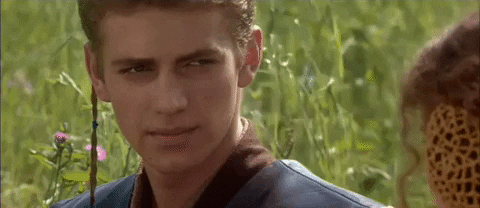
I grew up with Star Wars, my whole family loves Star Wars. I was 8 when I saw Episode I and afterwards, I was completely immersed in the Star Wars universe. Ewan McGregor's Obi-Wan Kenobi was probably my first fictional boyfriend and I'm unashamedly still in love with him too.
Episode II: The Attack of the Clones came out when I was 11 and so naturally I was excited to see the continuation of the Star Wars prequel universe. However, nothing could have prepared me for the absolute utter gorgeousness of Canadian actor, Hayden Christensen who was cast to play the adolescent Anakin Skywalker.
My memories of first seeing Episode II are fond because I got to see the movies with my older siblings while on vacation in Myrtle Beach. It was probably my first experience of being accepted among my older adult brothers and sisters or the feeling of 'grownupness' as I like to call it.
So Attack of the Clones has always been an special film to me because I saw it at a time when I was no longer being viewed as a child, but as a growing teenager.
It's also why I've always been rather defensive of the film too. While the film was titled Attack of the Clones, it may as well have been re-titled, "Attack of Anakin Skywalker (and subsequently, Hayden Christensen)". For over 20 years, there has been an absolute and indescribable hatred of Anakin Skywalker and many people blamed both Jake Lloyd and Hayden Christensen's supposed poor acting as the result of a badly done Anakin.
And to be honest even though I had a massive crush on Hayden Christensen and was hardly a movie critic at the time, I felt that at times that Anakin could have been better acted. However, I was young and didn't care about the script or the acting. Yet, for years I constantly defended, Attack of the Clones, Anakin Skywalker and Hayden Christensen. Partly due to nostalgia, partly to being a teenage girl and most of all partly to do with understanding the character of Anakin as being misunderstood, misinterpreted and not being treated as an adult by the elders in his life.
Did Anakin have problems? Yes.
Were most of these problems his fault? No.
Did Anakin ever try to fix these problems and better himself? Everyday of his life.
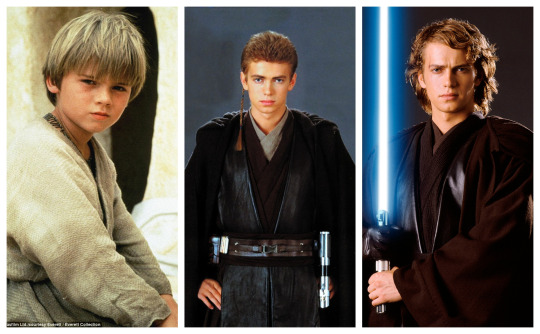
He had nothing, but he gave everything
The prequels were written as a timeline of a boy's journey from goodness into darkness. Anakin's life is a story arch of sacrifice and redemption. Life has not always been good to Anakin. He was born a slave with no father. He was raised in the strong love of wonderful mother Shmi Skywalker. While Shmi may have been scared and confused as to how she conceived a child without a man, she raised her son in love and simple contentment.
Chances are Anakin and his mother probably faced terrible abuse in their time as slaves and more than once, Anakin may have been separated from Shmi as leverage for greedy slave owners. Although a slave, Anakin was never a victim. He may have been physically owned, but his heart and mind were free. He was his own person, always thinking outside of the box, building, creating, questioning everything and everyone. Not to mention a little wild and rather reckless.
Even as a child Anakin was a little strange to people. For a slave to have such a hopeful and positive attitude may have seemed bizarre to outsiders, but that was just the norm for him. Shmi once remarked that her son knew nothing of greed. For a boy raised with nothing, all he had were his talents as an inventor and growing pilot. And he used his talents for other people. He built C-3PO to help his mom, he entered the podrace to help Qui-Gon Jinn, he always gave without any expectation of being thanked.
A spirit that refused to surrender
After Anakin is freed and sent to train as a Jedi, that wild spirit was still intact. Much to his by-the-book master's dismay. Anakin didn't have the opportunity to grow up in the strict Jedi Temple that was built on order, rules and tradition. As a child, Anakin was use to being himself and not fitting into anyone's mold. His original dream was to be a pilot, not a Jedi. No one asked him if he wanted to be a Jedi, no one asked him if he wanted to be trained by Obi-Wan Kenobi.
While Anakin may have been grateful for both opportunities presented to him, overtime he may have seen this new life as not to different from the one he left. A life run by others. Telling him what to do, where to go, how to dress, how to behave. He survived as a slave because he dared to dream and imagine and refused to be defined by others.
Now he's thrown into a culture where individuality is looked down upon. He lived through the stifling Jedi order because he still held onto those qualities. He was going to be himself on his terms. He would nod his head and say yes when he needed to, but off the clock he would live by his own rules. Something that Obi-Wan and the Jedi order could not understand. And Anakin is getting frustrated by this.
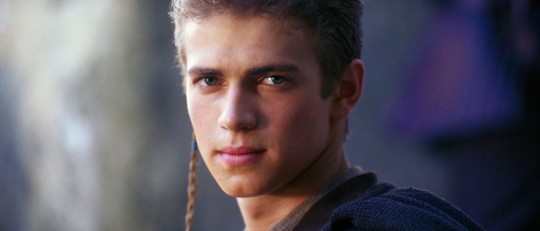
So now we get to Attack of the Clones (and the Attack of Hayden Christensen). Critics came down hard on both Anakin and Hayden. Constantly complaining about Anakin's constant complaining, his tantrums, broodiness and being a crybaby about everything. Critics blamed the disaster of Anakin Skywalker on the terrible miscasting of Hayden Christensen. The only redeeming quality Hayden Christensen had that saved him was the fact he was so easy to look at.
For years, fans were desperate to know who Anakin Skywalker was. And so the pressure to deliver a good character that could measure up to the icon of Darth Vader may have seemed insurmountable. And so when people got this confused, overemotional 19 year old, who has no experience in love or sex, but is madly in love with a beautiful young women; and who wants to be respected in a highly established culture, without losing himself or conforming, well people were just disappointed. The disappointment can be explained in one of Anakin's most famous lines.
"HE'S HOLDING ME BACK!"
He, being George Lucas who was holding back Hayden's actual talent to create a good three dimensional character. Plus his bad script writing. Poor Hayden was just made to read lines on a page and somehow make this sad character somebody that people can root for. Unfortunately fans and critics ate him alive. It's only in recent years that people have begun to realize that they were blaming the wrong person. And by blaming Hayden, they were completely misunderstanding Anakin as a character.

His most beautiful gift, his most fatal flaw
Of all of Anakin's gifts, his ability to love deeply was probably his most profound and his most dangerous. The Jedi Temple forbade romantic attachments to others and for good reason. When you become attached to or love someone beyond the boundaries of platonic friendship you become afraid of losing them. The end of my review for the Star Wars prequels sums it up the best:
In The Phantom Menace, Yoda warns Anakin about the dangers of being afraid. Fear leads to anger, anger leads to hate, hate leads to suffering. Anakin's most beautiful attribute is also his most fatal flaw. His ability to love deeply. Yet, if you love someone you will always live in fear of losing them. Anakin was created by darkness, but raised in the light of his mother's love. His own love was made manifest by Padme and then by their unborn child/children. However, Love no matter how strong can be weakened and even be destroyed by the evil of fear. If the prequels taught anything about life, it taught how fear (even in its smallest form) can be be our most detrimental enemy. Living alone in fear and not seeking help is a signing of our own death warrants. What might have happened if Anakin had gone to Obi-Wan and seek his help? Would things have been different? The prequels were not meant to tell a happy story. They were written as a timeline of a boy's journey from goodness into darkness. No, they don't have the silliness or humor of the Originals, because there is nothing humorous about someone's self-destruction. Yet, the story of Anakin Skywalker's transformation had to be told in a way that was real and heartbreaking. To take Darth Vader and make him a human who could feel and understand and love could be an insurmountable task. Yet, you only need to watch his death scene at the end of Return of The Jedi to see that the humane part of Anakin Skywalker had always been there. The prequels were made to be built on that final scene of redemption and human love. A husband's love to save his wife became a father's love that could overcome darkness and hate. An extreme love that defied fear and held on to hope. That was the love of Anakin Skywalker.
Anakin could be a bratty and immature young adult. However, to only base a character by his few annoying flaws is overlooking the bigger and better picture. Anakin was an outsider his whole life and yet that never seemed to bother him. He never cared about fitting in. He was content being himself and he refused to let Obi-Wan or the Jedi Order or even Padme change him. He held onto who he was for as long as he was able to. Then the tragedy of losing his wife changed that. The indomitable spirit wasn't broken, it was destroyed. Anakin re-entered a life of slavery for over 20 years.
And he was ultimately freed by one person. An orphan who once had nothing but a talent as an inventor and dreams of being a pilot. A young Jedi with an unbreakable spirit that refused to surrender to evil or fear or pain or loss. A son who loved his father so deeply that he would fight to the death to free Anakin Skywalker forever.
6 notes
·
View notes
Text
Emma. (2020). Directed by Autumn de Wilde
Autumn de Wilde’s Emma. (2020) is unlike any Austen adaptation I’ve ever seen. It’s Austen by way of Wes Anderson.
Emma holds a special place in my heart as my favorite of Jane Austen’s novels, which, if my circle of friends and acquaintances is to be trusted as a decent sample of the population, does not seem to be a popular opinion in the least. Most favor the sparkle and wit of Pride and Prejudice or Anne Elliot’s deeply felt emotional life in Persuasion, but Austen famously wrote that she wanted to create a main character no one would like in Emma, and she seems to have succeeded. One picks up on Austen’s own attitude toward her heroine in the first line of the novel, in which she writes, “Emma Woodhouse, handsome, clever and rich . . . had lived nearly twenty-one years in the world with very little to distress or vex her.” On the surface, this could appear as simply an accurate description of our main character (and it is), but if one knows Austen, one also knows there is always much more going on underneath the surface in her writing, and it takes some attention to see this. Here in the first line of the novel she is already making fun of poor Emma.
My appreciation of Austen’s sardonic side is not the only or even the main reason Emma is my favorite of her novels; it is rather the complexity of what Austen does in the novel and the seeming ease with which she accomplishes it. Like all who have genius, Austen makes it all look so effortless, which is one of the reasons her writing is often misinterpreted and misunderstood. When one looks past the surface of her novels, one sees that Austen explores foundational questions of human nature, which of course includes love and marriage, but also questions of being and appearance, and questions of family and community. It seems to me Austen has a particular interest in the question of paternity and authority, as father figures (or the lack thereof) all seem to bear special importance for her heroines.
In any case, in Emma, Austen weaves the novel around the self-important main character and two other supporting actors born in the town of Highbury the same year as Emma, Frank Churchill and Jane Fairfax. These latter two are seen relatively sparingly in the novel and instead act as specters of what Emma’s life could have been; the three are connected not just by birth year, but by the early losses each has suffered. Frank, born to the affable Mr. Weston, loses his mother around three years old, and as a result his father ships him off to live with an aunt and uncle, thinking he cannot take care of his young son himself. Jane is an orphan whose only living family are her very poor grandmother and very tiring aunt, Mrs. and Miss Bates, and who, despite her accomplishments and beauty, seems destined to become a governess because of her lack of family and connections. Finally, there is Emma herself, whose mother died when Emma was young, and was raised with her sister by her father. All three children born to gentlemen from the same town, and yet all three with very different fates. Throughout the novel Austen demonstrates just how deeply these familial losses have affected our trio without ever commenting on the situation directly. Frank feels somewhat torn between his two families; Jane seems to be the loneliest creature alive; Emma is rather more obnoxious than she should be with a father who indulges her every whim, so long as she stay at home with him where he is sure that she will be safe. Of course the story is told through the drama of who is going to marry whom, but the story Austen tells in Emma is more deeply one of loss, community, and friendship.
There is so much more here than romance. In fact, there is always more to Austen’s novels than romance, a fact that escapes many of her readers and I think, most of her adapters. I of course have my own private ranking of the different on-screen adaptions (with Joe Wright’s Pride and Prejudice (2005) coming at the bottom of that list), but all tend to be both romantic and Romantic in tone—not only focusing on the love stories of the main characters, but also filled with picturesque set pieces of the English country side, awash with dark and moody color palettes, and when the final profession of love does come, it comes in dramatic and breathy fashion. I enjoy a fantastical profession of love as much as the next girl, but I think Austen herself might laugh quite a bit at these adaptations (and in particular the professions of love included therein), as one of the things she constantly points out in her novels is that because human nature is quite flawed, language is often the means of confusion as much as it is clarity. We need a community around us in order to understand both ourselves and other people because our own vision is incomplete without others. But again, because human nature is messy, the coming together of a community can also be quite messy. Humans are a bit absurd, after all. Austen doesn’t miss this, but her on-screen adaptations mostly do.
Autumn de Wilde’s Emma. does not miss this at all. Brightly lit and pastel-colored, one knows immediately one is in for an Austen adaptation unlike any other. Emma (Anya Taylor-Joy) is established immediately as simultaneously completely obnoxious—treating the servants poorly in her self-righteous manner—and sympathetic. The movie opens on the day of her long-time governess’s wedding, which not only will take Miss Taylor away from Emma’s day to day life, but also leave Emma the only person at home with her perpetually worried father, Mr. Woodhouse, here portrayed by Bill Nighy unlike I’ve ever seen before, not as fragile and eternally grieved, but as sprightly and absolutely absurd—terrified of drafts and ready to spring up from his seat at any moment to find and block their source.
This is the unexpected joy of de Wilde’s Emma. It picks up on and leans into Austen’s humor in ways I’ve never seen done before; I found myself laughing out loud at some of the blocking and visual jokes, and this led me to think about Austen’s novels and their adaptations in a new light. One of the reasons the Great Books can (and should) be read again and again is the almost infinite depth of these works, which leads to different aspects of the text shining through during different readings. Indeed, there is an almost Scriptural quality to great works of art, with something new coming to light each time one engages with them. Think of how we approach Shakespeare: his plays are infinitely fruitful, depending on the context in which one places the characters and the tone and emphasis given to each line. The plays stay the same and yet each rendition brings something new about reality to light. Couldn’t the same be said of Austen’s works?
De Wilde’s Emma. highlights humanity’s absurdity—and mines it for every bit of comedy it can—but also the loneliness we feel when our communities are broken. One of my favorite aspects of this adaption of Emma is its depiction of Mr. Knightley (Johnny Flynn), the Woodhouses’s neighbor, and one of the only corrective influences in Emma’s life. Adaptations of Emma often show Knightley as more or less having his shit together from the beginning and not having much of an emotional journey to make other than figuring out at some point he is in love with Emma because of his jealousy of Frank Churchill. But Emma. picks up on Knightley’s somewhat lonely existence—he spends his days taking care of his very grand estate alone and in conversation with no one else. As Knightley walks through his magnificently decorated hallways, we see that much of the art is covered; he lives there, but does not enjoy what he has for he has no one with which to enjoy it. De Wilde’s Knightley is alone most of the time and somewhat awkward, and he too must make an emotional journey to understand that he is not after all content with his current state of affairs.
I wrote above that Emma. is Austen by way of Wes Anderson. There are aesthetic similarities: brightly lit shots filled with pastels, a coherent color palette for each character’s costuming, head-on and intimate blocking that makes one feel one is in the room with the characters rather than observing them from some Archimedean point. But the similarities run deeper than just aesthetic interpretation: Anderson’s films tend to concentrate on some sort of wounded family-unit beginning to acknowledge the wound and starting to heal by coming together despite the difficulties our messy natures present for us in attempting such a task. And the comedy Anderson finds in this does not come from making fun of his characters, but rather in showing the absurdity that arises out of our attempts to answer our desire for communion. Both the people we love and we ourselves have shortcomings and so the task of community and communion is bound to be a bit messy—and also very funny. Anderson never laughs at his characters, but always with them, in a deeply felt recognition of the human condition. De Wilde’s Emma. is very similar, and highlights this theme of the desire for community and all its frustrating and absurd consequences in a way never before brought to life in an Austen adaption. At first the unfamiliar tone took me off guard, and I wasn’t sure if de Wilde was taking license with Austen’s work. Upon further reflection, however, I see now that de Wilde is perhaps truer to Austen than any who have come before her, for she sees past the surface level romance, which most do not get beyond, and in her adaptation of Emma points to the great tragedy and comedy of being human.
3 notes
·
View notes
Photo
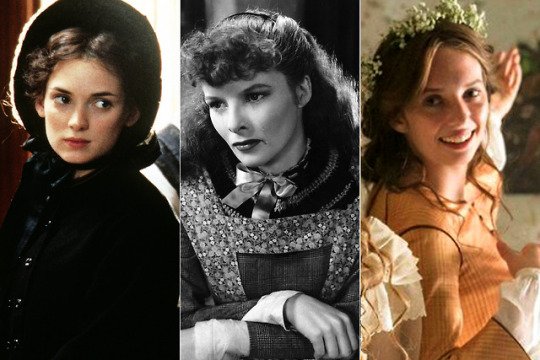
So, you want to adapt Little Women for the screen.
There’s quite a challenge ahead of you, Gentle Readers. Might I help get you started?
What, you might ask are my own bona fides in suggesting that I might have the right to hold forth on such a topic? Very well, I first read Little Women in 1983. The first of countless times I have read it. Actually, I collect copies of it, and buy interesting ones whenever I see them. I’ve seen more than a few adaptations of it.
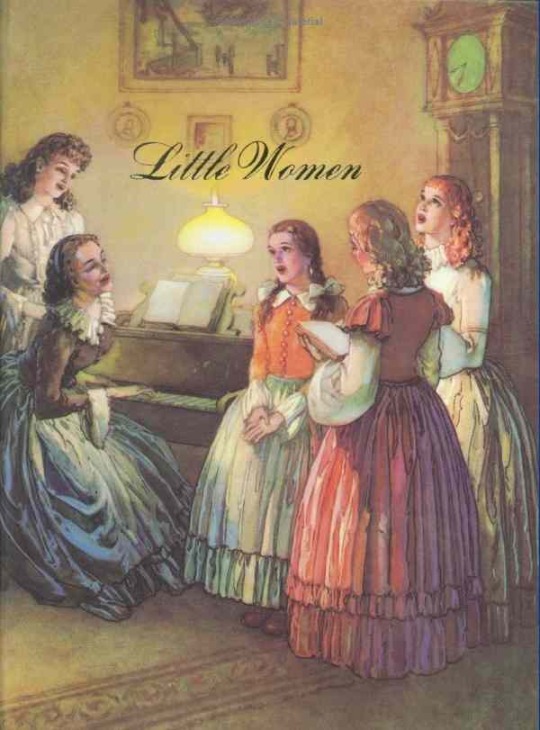
The cover of my first copy. A giant volume, it was highly impractical to carry around. I did it anyway.
An initial challenge, any screen writer will tell you, is sheer length. Little Women was originally published as two separate books. So, an initial novel, and a sequel. By 1880, the two volumes were forever published as one.
Not only does this mean lots of pages and plot needing weeded out of your script, but it also means you’re going to have two climaxes and two denouements (seems about right for a female novel, yeah?), another challenge when adapting the two stories into a single film. (Imagine having to create a single story/plot from Philosopher’s Stone AND Chamber of Secrets).
Inevitably, what generally happens in past adaptations is that Part II gets greatly compressed and short-changed (and I do not doubt, Gentle Readers, creates some of the dissatisfaction among viewers and fans where the handling of Laurie’s proposal and the latter adolescence of characters and their romances/mates don’t land as they might if spent more time with).
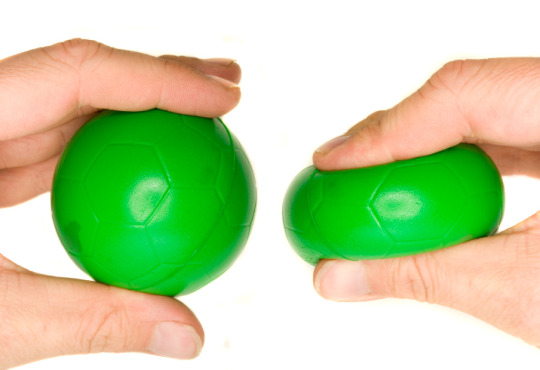
Actual illustration of Book One (on the left) and Book Two (on the right) once adapted for film.
According to Wikipedia: The book has been adapted for cinema; twice as silent film and four times with sound in 1933, 1949, 1978 and 1994. Six television series were made, including four by the BBC—1950, 1958, 1970, and 2017. Two anime series were made in Japan during the 1980s. A musical version opened on Broadway in 2005. An American opera version in 1998 has been performed internationally and filmed for broadcast on US television in 2001. Greta Gerwig is directing a new rendition of the novel, set to be released 2019.
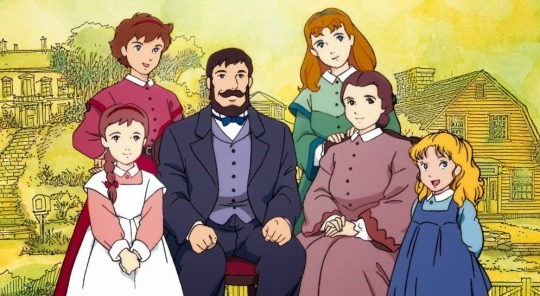
I could not hit “Add to Watchlist” fast enough.
So, the list of folks attempting to tackle Little Women is a long one, and not always a successful one. Some elements of the story are always going to play well, and frankly, be hard to mess up too much. But others? Others have some real sticking-points.
I’m not here to critique individual versions of adaptations today, Gentle Readers.
I’m just here to muse on the Big Questions that need solid answers when you’re ready to take on writing your adaptation.
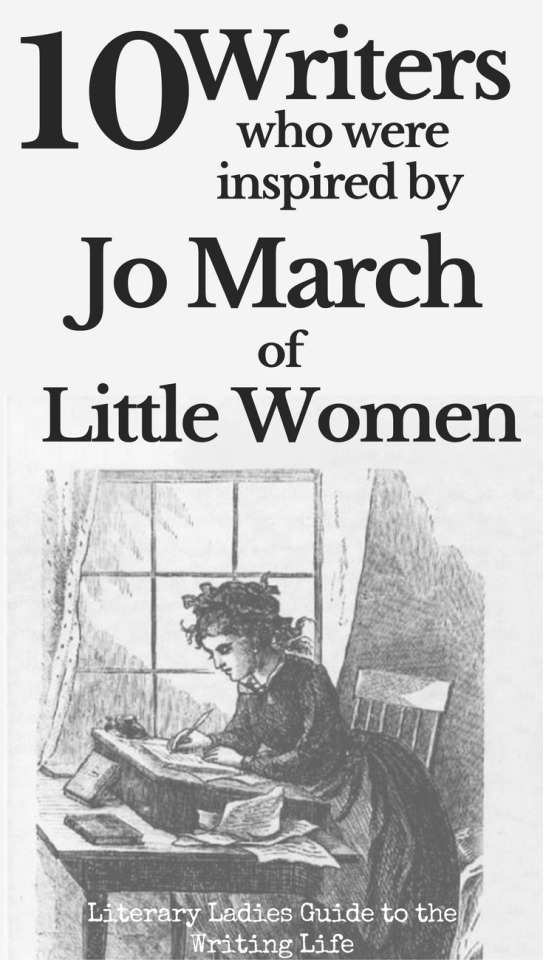
Someone contact them, I demand a recount.
1. How much of the true lives of the Alcott family will we include?
It’s no secret at this point that Alcott took a lot of inspiration from her real life. But how much do we include? Do we have Thoreau invited over for dinner? Do we address some of the more radical notions of the Alcotts’? Do we just go ahead and make Father in the novel like Bronson in real life?
a. How to explain/not explain the war and its effect on their lives
For contemporary audiences and readers, the incredibly matter-of-factness of the Civil War taking place deep in the background of the story will not resonate as much as it would to readers back in the day (It plays a bit like the Blitz in The Lion, the Witch, and the Wardrobe]. Perhaps it might be a good idea to bring it closer to the fore, beyond merely showing the girls in hoops, and coming across the occasional newspaper story or quietly dropped reference to a battle.
b. How to address or not address the March’s contemporarily confusing socio-economic position (that of ‘genteel penury’)
Gentle people now in reduced circumstances is a tough sell intellectually when 2019 can allow most everyone to disguise their financial situation through extensive credit and things like those housing bubble mortgages given to lots of Americans. It’s going to be necessary at some point to explain or show how the Marchs, who have so little themselves, have (to our 2019-eyes) pretty clothes, a large, cozy house, the ability to take food and minister to the (much) poor(er) Hummels, and a house servant; Hannah. The humiliating fact that they can’t buy new gloves for a party does not...exactly track in the twenty-first century.
They’re much worse-off than the Bennets of Longbourne, whose financial crisis is on the horizon, but how can you show that to viewers unfamiliar with the notion of life as a fallen-from-wealth family?
2. The persistent problematic-ness of Amy/Laurie
I will call to mind one adaptation, here, and Kirsten Dunst’s performance in particular. Singlehandedly, at the age of only *10*, she manages to sell the potential of not only Amy, but Amy/Laurie like no one else this tumblerian has ever seen. What a tragedy the film couldn’t have waited for her to grow up enough to also play Amy in the film’s second half.
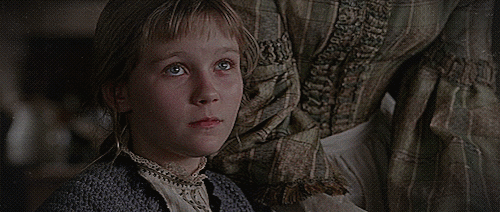
In a world where perfect casting is rarely obtainable, this child should have been nominated for Oscar. She out-performs every Amy March before or since, ad infinitum.
Like many of the romantic partnerships, which other than Jo/Teddy (which is not presented as romantic in Book One) are included only in Book Two, films front-loaded with Book One (I can’t think of one I’ve seen that wasn’t) find themselves racing to a conclusion, and every one of the three couples suffers in presentation and allowing enough time for viewers to be ‘courted’ by them into liking them.
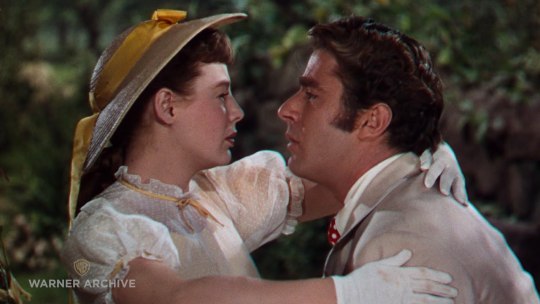
There’s simply not enough time left to work on all of them. So, it becomes a decision of which one is more important. Traditionally, as Brooke/Meg happens first, they get some character beats, but once Jo turns down Teddy...
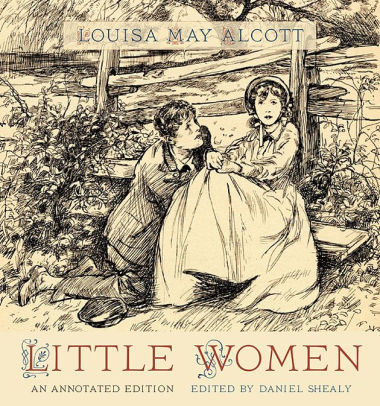
I can hear the screams of horror across the ages.
...adaptations become a fight between showing Amy/Laurie or Jo/Bhaer, yet both of which are true surprises to viewers not familiar with the story, and who need time to warm up and be seduced by these new pairings.
(Mind you, I do think Bhaer and Jo should sneak up on a viewer/reader, but there still have to be signs planted here and there that make it make sense when it actually does happen.)
3. The age and age progression of the girls
Per the book, the story begins with Meg 16, Jo 15, Beth 13, and Amy 12 (aside: poor Marmee).
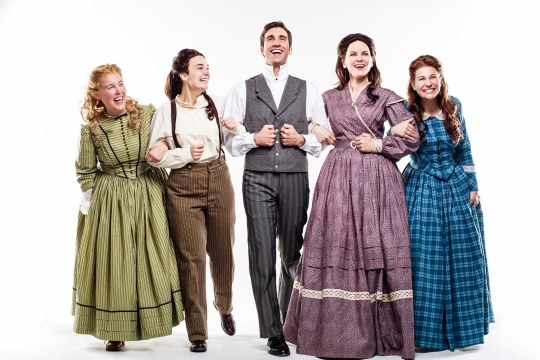
A clear example of...impractical* casting for teenagers. (And Jo! In trousers!?) * but perhaps necessary for community theatre
As I mentioned a few lines ago, Amy becomes the most difficult to cast, here, as it’s unlikely a person can play both 12 and the age of Amy when she accepts Laurie. Amy may be only 16 or so when she accepts Laurie, but contemporary viewers are probably going to need a little more assurance she’s not a child bride by her looking more mature than 16.
Beth is frequently cast older, which is also troublesome. She’s 16 at most when she dies, and has been ill for some time. (So, easy to assume she wasn’t growing rapidly.)
Jo has to be able to play age 15 to 25+.
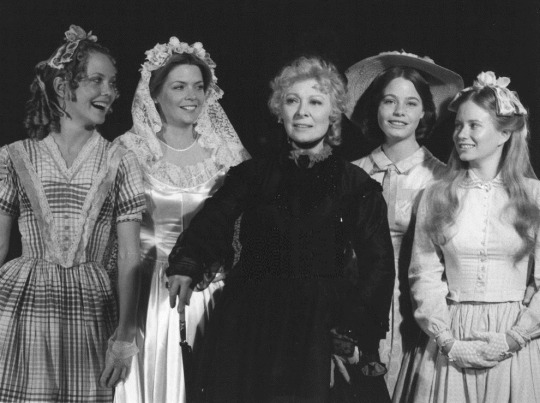
Is that meant to be Jo on the left? Does that make Susan Dey Amy? Anyway, this production has the luxury of doing better on the ages of the girls. And they’ve got the inimitable Greer Garson as Aunt March!
Actors chosen can’t only be made-up to pass for certain ages, they also have to convince us they’re playing dress-up in the garret in the early portion of the film.
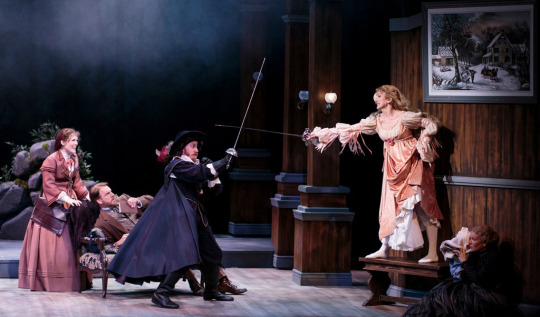
In fact, Jo in particular with her harum-scarum ways isn’t deliberately trying to make constant mistakes and faux pas. She’s a kid who hasn’t yet grown up, with a kid’s energy and unbridled sincerity. Convince us of that.
4. How to show both the importance and the growth of Jo’s writing
Filming someone writing is rarely moving to watch, and what’s more, writing is so misunderstood as a pastime or even a vocation, it doesn’t easily lend itself to being captivating when shown on-screen. And yet Jo’s writing is not only vital to the story, the growth and expression she finds in it are so deeply important to her character, and later to her romance plot with Bhaer. It’s got to be shown, and more than once. Moreso, or at least as much so as her temper, her mouth, and her lioness-like care for her sisters, it IS who she is.
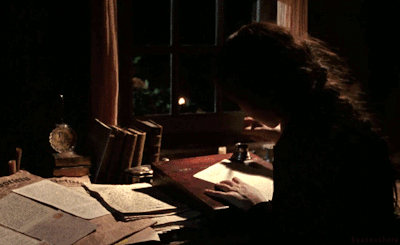
Where’s the silly hat?
5. Flawed female characters that are meant to confront and wrestle with those flaws
Well, this is a big one, here. It seems to me we’re sort of operating by 2019 where that old saw of [man] girl vs. self isn’t really written about or shown. Our society at large has become very vocal about whoever we are being awesome and “never change”.
Which is just about as far from the notions in Little Women as one could get. Every one of the ‘women’ has something they need to work on, to grow and improve about themselves. From Meg not being able to get over their loss of money and status (remembered from when she was younger), to Amy’s dissatisfaction and constant desire to fine things, to Beth’s introversion, to Jo’s temper and intolerance of those who aren’t as bold and rebellious against society as her, and Jo’s inability to accept the change that will constantly be coming into all their lives as they grow.
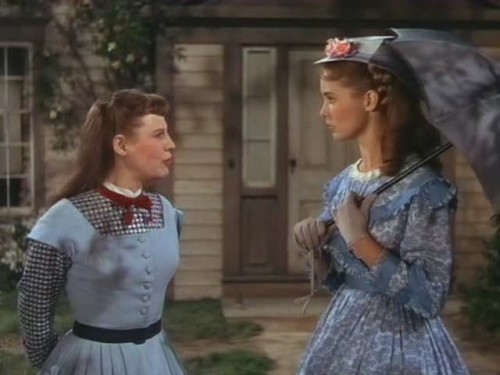
Nasty!
The Little Women Alcott wrote had lessons to learn, and directions to grow, contrary to what their gut reactions might be. You can call that a moralistic take on the novel, but you can’t argue that Jo has to change, and is expected to be her own instigator of that change within the novel(s). [It does seem like anymore in films that the only person we expect to change bad habits or wrong ways of being are actual ‘bad guys’/villains. And sometimes not even them.]
6. Friedrich Bhaer
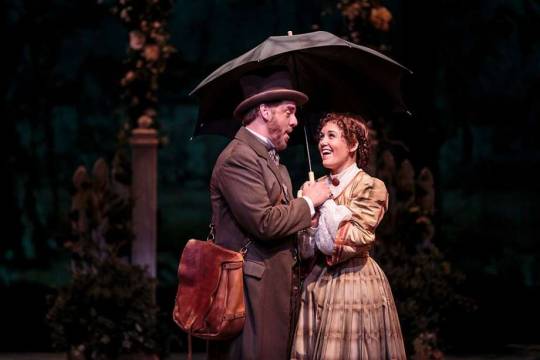
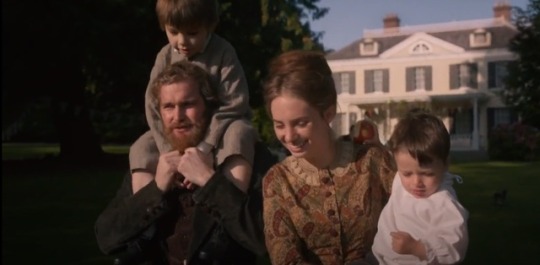
Well, that’s a mouthful. I don’t doubt that it always has been. The single, fan-dividing phrase of female literature. Am I right?
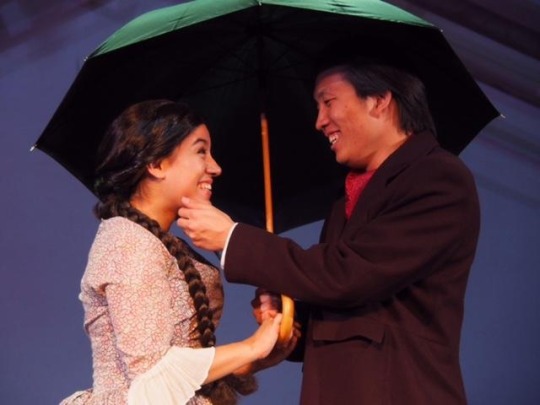
Doing for umbrella representation until Gene Kelly came along.
You know the story, right? That Alcott was so DONE with readers after Book One assuming and expecting Jo and Teddy to live happily ever after, she was so frustrated (she had never wanted, nor intended for that to happen) with all the shipping she built a Bhaer bomb.
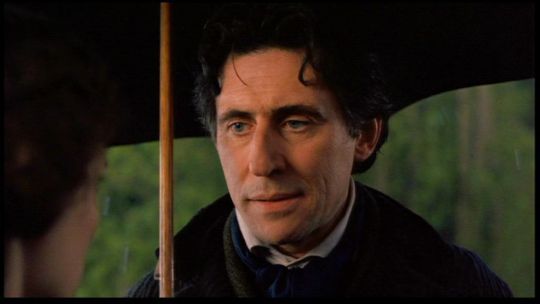
@grrlinthefireplace would climb that.
And it’s still exploding readers’ and viewers’ minds today.
Why Professor Bhaer is the perfect match for Jo, and why their marriage and life together makes ultimate sense is certainly a post for another time, but I will say that if you’re still sore about it, take some time and reread the book as an adult, and see if you don’t also come to see the eminent sense in it.
That said, in any satisfying and successful adaptation, you’ve got to work hard to sell the man your heroine chooses over Laurie. Laurie’s had all of Book One and a good three-quarters of Book Two to endear himself to readers. Who’s this guy?
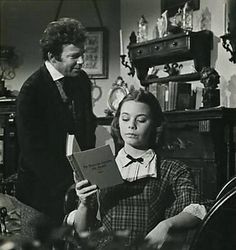
Well, yes, that’s William Shatner...as Professor Bhaer.
This guy isn’t good enough for Jo. This is nonsense. “Weird old guy with an uncomfortable age gap with my fave.” Are not the sort of things you’re going to want to read in reviews.
First, you’ve got to cast him right. Hollywood’s not *overly* worried about distressing RL gaps in ages between their actresses and actors, you might know, and beards are actually pretty in right now. Bhaer’s not a babe by any means, but he’s got an accent he can work. And he’s in love with our fave.
Think an Alan Rickman-type (I know he’s not German), did you see how hot Kurt Russell made Santa Claus in that Netflix Christmas movie? Jeff Bridges, Pierce Brosnan? Probably all too old.
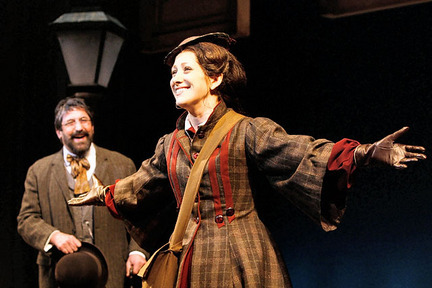
Bhaer’s actually described as “middle-aged”, which means 40ish, to Jo’s 25 (when she accepts him). You know who’s 40ish in Hollywood? Gerard Butler, Hugh Jackman, Ewan McGregor, most of Hollywood’s Chrises, RDJ for Pete’s sake is 53. Give him a beard, and awkward social presence tick, and get him working on that accent, and I guarantee your audience will buy Jo’s attraction to him, and create a Twitter for his umbrella.
In the end, Bhaer is key to understanding that the novel isn’t trying to transform Jo into a woman who will fit into Teddy’s wealthy life and the social circles he has no plans to turn his back on. Bhaer is literally the embodiment of Jo making choices that she learns (and I daresay we are meant to learn) are right for her. She finds a man comfortable with who she is, who is in love with her brain as much as with the rest of her, who sees their coupling as a joint project, and who wants her to be the best her. (cough, cough, Gilbert Blythe prototype)
You’ve got to get him right, or what’s come before gets lost in dissatisfaction for Jo’s final, epic choice.
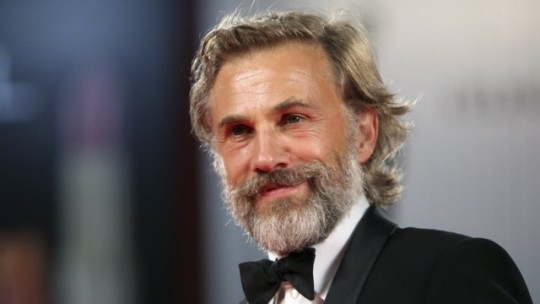
Oh, look, a nice picture of a charismatic, bearded German actor. How did that get here?
Let’s be succinct here in the end, Gentle Reader. Little Women (Books One and Two) and Little Men and Jo’s Boys would make a splendid series. (Such as Anne with an E), there’s certainly enough episodic drama and plot to go around.
Keep that in mind when planning out your adaptation.
What film adaptation is your favorite, and why?
106 notes
·
View notes
Note
why do your analysis make it sound like ogata never did anything wrong?
Hello there anon,
I will do my best to answer your question. So, you are curious about why my analyses do not focus on all of terrible things that Ogata has done in the manga?
Well there are several different ways for me to answer your question.
1.) Ogata is my favourite character. I find him fascinating and even when he shot Wilk and Sugimoto, I was like “interesting.” What was his reasoning? In part he was working with Kiro and also shooting Sugimoto was a sound strategic call. Prevent the relay of info from Wilk to Sugimoto etc etc. This is the lazy answer - he gets a free pass from me b/c he’s my fav. Asirpa is my #2 and Kiro is my #3. I have a tendency to love morally grey characters - they fascinate me.
2.) I want to understand Ogata’s actions. Many of my meta focus on trying to understand how a damaged individual would deal with his personal history. Noda starts out with backstory that makes him look very questionable (chapter 103) but over time you learn more and more about his pain and suffering and it starts to make more sense. Chapters 164, 165 and 169 all made me cry. That is amazing writing by Noda to get that reaction out of me as a reader.
3.) I connect with Ogata as a character on a personal level. He’s an introvert. He was/is bullied. He is smart but frequently blown off or ignored. He buries his feelings and emotions. He’s a very relatable character to me as a reader and personally makes me feel like he is misunderstood.
I wrote a deeply personal meta that touches on that here:
https://chibivesicle.tumblr.com/post/182930219597/ogatas-behaviour-is-contradictory-during-the
4.) I want to see him grow and change over the course of the series. The end of the Karafuto arc was hard on me. I knew something terrible was going to happen to him based on his actions up until that point. When Ogata started lying I could only facepalm and be like “goddammit Ogata… .”
The best way that I approach the series is to try to determine why all the characters doing what they are doing. But those who are more similar to you personally are easier to connect with than the ones you would not be friends with in real life. Sugimoto is at times very hard for me to understand or connect with … he’s so emotional, he bullies other characters, he’s overconfident at times … he intimidates me. He makes me uncomfortable.
So back to how i approach writing:
I put a lot of time and effort into what I write. I will not disclose the number of times I’ve read the manga all the way through, but there are some chapters or panels that I’ve read 20+ times for sure. You always notice something new or get a new insight into a character or event.
It takes anywhere from a few days to a few months (my Kiroranke meta) to come up with ideas for metas. I write a rough draft of a chapter summary when I first see the raws. I then sleep on it and start to edit it further and add in images. I finally post it when the english translation posts. For more serious topics, I may mull over it for awhile, I may talk to others for their feedback and opinion. Sometimes I just do it all by myself and put it out there.
With anything that one writes, it always has your opinion or flavor to it as well as your feelings on the topic. I do this for fun; my real job is stressful enough that I don’t need to replicate that here. I always remind myself that I feel so strongly about a character like Ogata or Kiro b/c it shows how well written they are and I give Noda full credit for such a good story. But I do not wish for a certain character to say die, just out of spite that someone else may really love that character.
I can’t speak for all Ogata fans, but a lot of them don’t want Ogata to get a “free pass” card in the series. Everyone recognizes he’s made a lot of poor decisions, but instead of condemning or judging him for them, they want him to change and to heal as a character. Many of these individuals also connect with Ogata on a personal level. Maybe you do not find Ogata relatable? And Ogata fans don’t find Sugimoto relatable. These are all valid feelings but each reader will approach the manga for his or her own experience and viewpoints.
Going back to how I personally felt about Ogata at the end of chapter 187.
Here is the end of one of my analyses here:
https://chibivesicle.tumblr.com/post/182337609272/golden-kamuy-chapter-187-part-2

Golden Kamuy isn’t a good vs bad, light vs dark manga. I am upset that the anime tried to simplify it and do what I call “shounen-fication” of the series. This manga has much more depth to it and it also shows basic human interactions. Some characters get away with more bad behavior than others. As Ogata began to lose it on the ice with Asirpa, his behaviour becomes downright childish … and it made me upset but at the same time, that was what he was doing. And his behavior made sense even if it made me cry.
This is such a well written manga… all of the main characters have a lot of depth and they are all deeply flawed in some regard. But the manga is showing us if they are growing and changing or if they are running away from their problems. This is also a very political manga - as a result it will also have vary strong and polarizing opinions on it. I find the best way to approach it is see how you feel about it and how you rationalize it and then if you are interested in someone else’s opinion read that as well! But if not, you don’t have to, remember it is just a really really well written manga.
25 notes
·
View notes
Text
I’m in this weird sort of... middle ground of appreciation for a lot of villains. I’m going to use Ben/Kylo Ren as the example but the principle is pretty similar on a lot of other characters. (Got a bit long, so under a cut)
Ben is, in my opinion, a fascinating character whose design choices perfectly reflect what a human disaster he is. His lightsaber’s unstable, as is he. He affects all black and a scary mask to hide his underlying insecurity that he’s not half the baddie he wants to be. He freely engages in deplorable onscreen atrocities, gets all creepy and invasive with our hero, and murders his own dad who is a beloved character in his own right- two for one: your new villain proving his commitment to evil both in-universe (killed his own dad!) and for (most) fans (killed Han!).
But he’s still, essentially, a bit of a pissbaby. That’s the point of him. It is entirely deliberate. Props to the writers and to Adam Driver for conveying Ben’s inner conflict and also his inner entitled shitheel. Rey fucking impales him with her insight- “You’re afraid you’ll never be as powerful as Darth Vader.” Because in all likelihood, he won’t be. And while he’s trying desperately to be, the film itself isn’t trying to make him that iconically scary. Which is beautiful.
So often you’ll have a movie or a show come along- especially a sequel/later season to an established property with an established villain -and try to one-up what they’ve done before. “You thought that guy was bad? Wait until you see THIS guy!” TFA cleverly both avoids that while also using the basic idea to drive a lot about Kylo’s characterization. He wants so desperately to be the iconic looming dark side terror his graddad was. The secret is that his granddad got there through- and admittedly what follows is my own interpretation of Vader -almost suicidally depressed, with nothing to live for save the ashes of his attachments and the empty victory he never wanted. His story is essentially a tragedy- young emotional kid has too many burdens upon him; becomes fascism apologist and thence makes the step to mass-murderer. Ben’s is a lot more like the backstory you get from school shooters- entitled young loner thinks he has to do awful things to be like his misplaced idol, becomes murdering fascist scum. Ben voluntarily cut himself loose from his loved ones, willfully turning his back on his support network. While Anakin kinda did the same, his ‘support network’ was a lot less understanding of his situation so his decision to not go to the Jedi or even just Obi-Wan with ‘Heyyy, so, uh, I fucked up and got super uh, ‘attached’ to the Senator from Naboo and now she’s carrying my kids but uh also the Force is giving me terrifying visions of her death, help plz?’ would not have gotten a very helpful response. So he went to Sheev Shitting Palpatine and we got our tragedy.
Ben’s backstory hasn’t been as fleshed out obviously and they’ve made it pretty clear that he was being manipulated in a similar way by Snoke, but like, dude, your parents? Your uncle? None of them are opposed to emotions. All of them wanted you to be happy. You threw that away, killed your fellows, and ran off to wear black and goosestep your way off the moral event horizon.
Ben is a villain for our time- a shitty, insecure, mediocre white man who thinks the world owes him and who turns to fascism when he feels slighted. I think he’s a fascinating villain and an interesting character but I have no qualms about seeing him get his ass beat like he deserves. He’s not a ‘misunderstood cinnamon roll.’ Neither is he the irredeemable iconic monster he really wishes he was. Maybe he’ll get a redemption arc (though I kinda hope not; Han was pretty much offering his narrative ‘last chance’ and we all know how that went) and maybe he won’t, but the point is that he’s a deeply, deeply flawed man.
Anyhow that’s where I end up with a lot of villains to be honest- I find them fascinating and compelling and I even maybe sympathize with their emotional turmoil a bit but I don’t ever go ‘aww poor baby he’s just misunderstood~’ or anything like that. Just... getting tired of the extremely divided binary rhetoric about so many villains. Yes, they’re awful- that’s the point of them. Yes, it’s more interesting when their motives are complex and compelling. No, that doesn’t make them not awful.
Feh.
17 notes
·
View notes